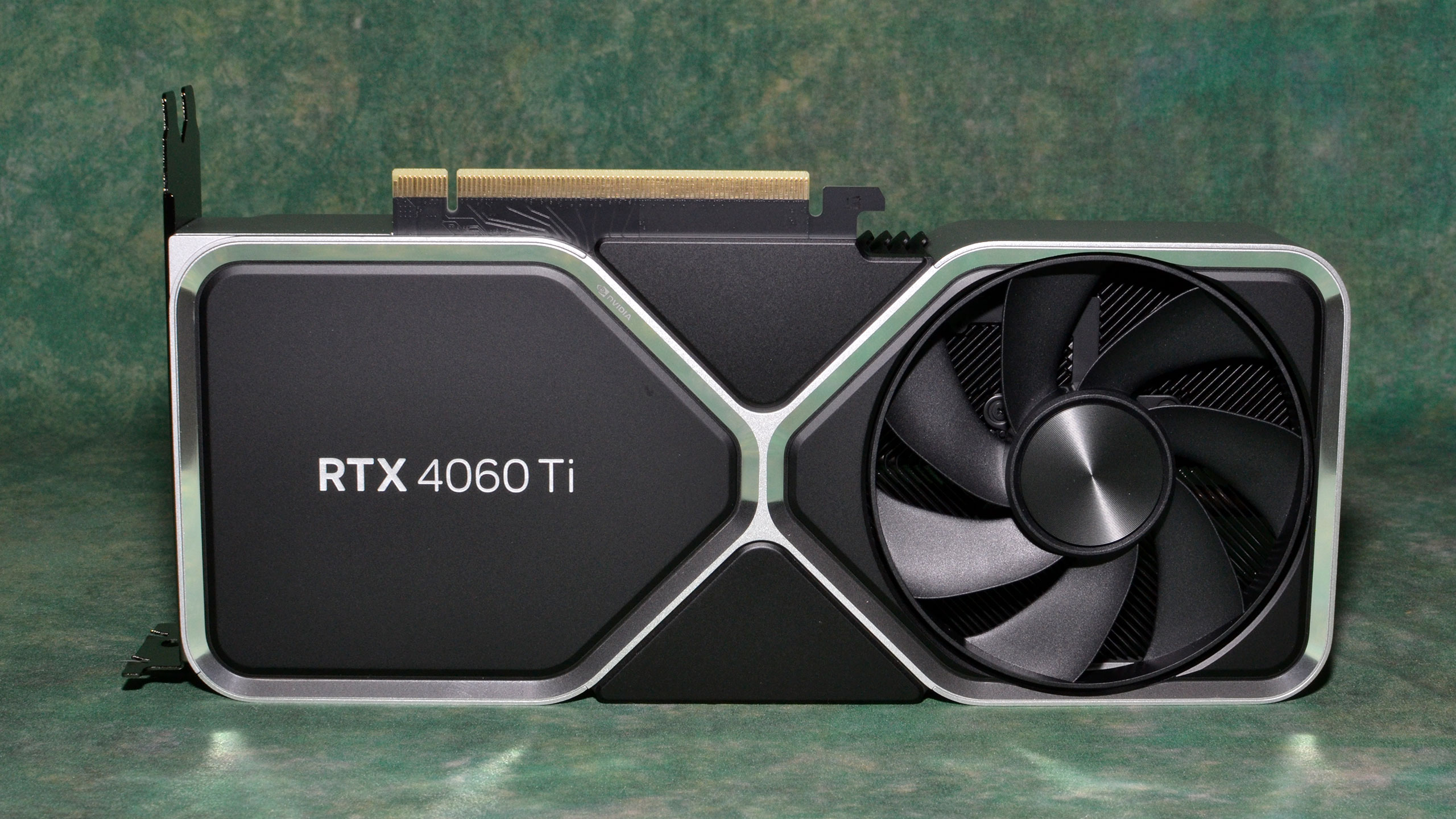Why you can trust Tom's Hardware
With a starting price of $399, the RTX 4060 Ti lands firmly in mainstream GPU territory. Sure, the GTX 970 back in 2014 was a "high-end" GPU with a price of $329, but things have changed quite a bit over the ensuing nine years. Nvidia says the RTX 4060 Ti is intended primarily for 1080p gamers, and points to the Steam Hardware Survey where 65% of surveyed PCs still have 1080p as their primary monitor's resolution.
Of course, the Steam survey also includes a lot of laptops, which by their very nature will often be limited to 1080p — and probably 99% of the 1366x768 results are from laptops as well. The RTX 3060 Ti meanwhile launched as a 1440p solution and still generally works fine as a 1080p solution. But whatever you might think, 1080p monitors remain very popular. We'll cover 1440p, 4K, and upscaling performance on the next three pages, though, because those are still important.
Our new test regimen gives us a global view of performance using the geometric mean all 15 games, including both the ray tracing and rasterization test suites. Then we've got separate charts for only the rasterization and ray tracing suites, plus charts for the individual games. If you don't like the "overall performance" chart, the other two are the same view that we've previously presented.
Our test suite is intentionally heavier on ray tracing games than what you might normally encounter. That's largely because ray tracing games tend to be the most demanding options, so if a new card can handle ray tracing reasonably well, it should do just fine with less demanding games. Ray tracing also feels increasingly like something we can expect to run well, when optimized properly, and Nvidia's hardware proves what's possible. We're at the stage now where mainstream GPUs need to be better than the previous generation RTX 3060, across all APIs. That's my take at least.
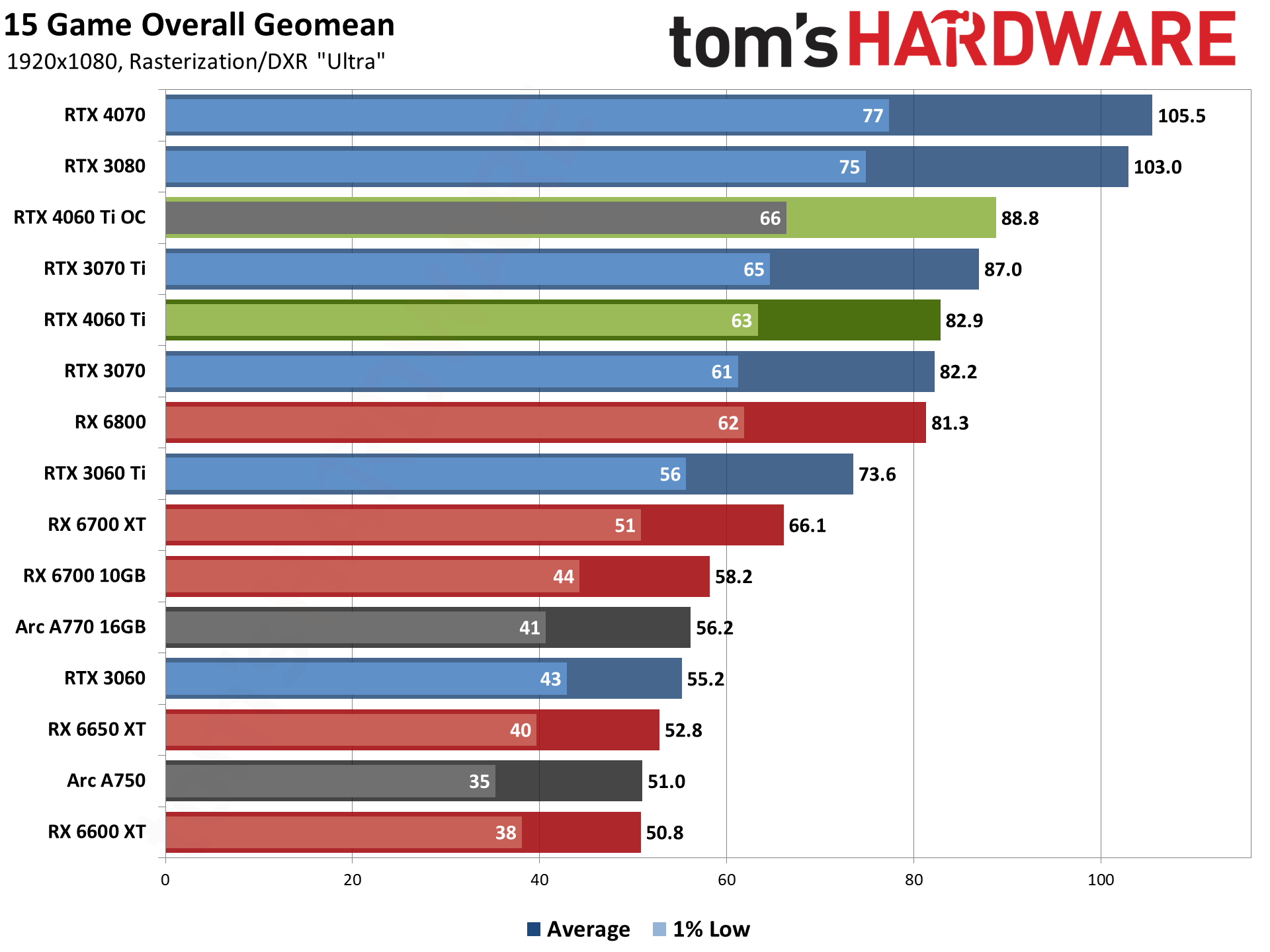
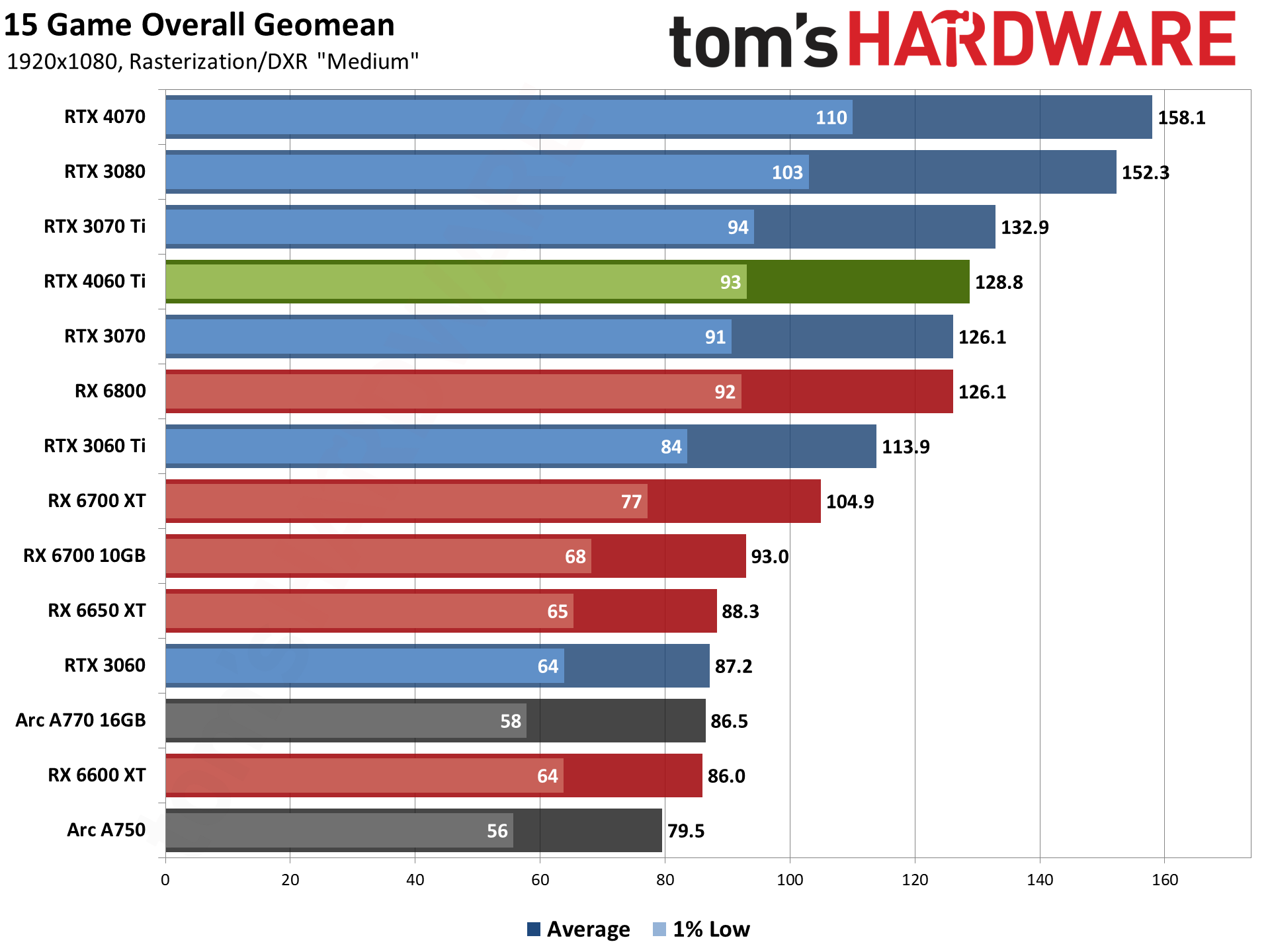
We have two charts, 1080p ultra and 1080p medium. Ultra settings feels like a better option for a $399 graphics card than 1080p medium, so we'll focus on that — the medium results aren't radically different, though. Right out of the gates we get some interesting results. The RTX 4060 Ti ranks ahead of the RTX 3070, barely, and also outpaces AMD's RX 6800.
That's because of the ray tracing games, though we'd argue that support for DLSS would make the big picture pretty close to this even if you discount ray tracing — and then you could discount DLSS as well. Anyway, we'll have the pure rasterization results momentarily.
Being faster than the RTX 3070 is at least something, but the lead is very slim, and the RTX 3060 Ti isn't far behind either. Gen on gen, we're looking at native performance that's only 13% faster with the RTX 4060 Ti.
Overall, the RTX 4060 Ti averages 83 fps at 1080p ultra, easily clearing the 60 fps threshold. However, the most demanding games — or more specifically, half of the ray tracing games — come up short of that mark. Less demanding titles meanwhile can push into the triple digits.
At 1080p medium, average fps jumps to 129, and now everything breaks the 60 fps mark... except Cyberpunk 2077, which will need upscaling or Frame Generation to get there.
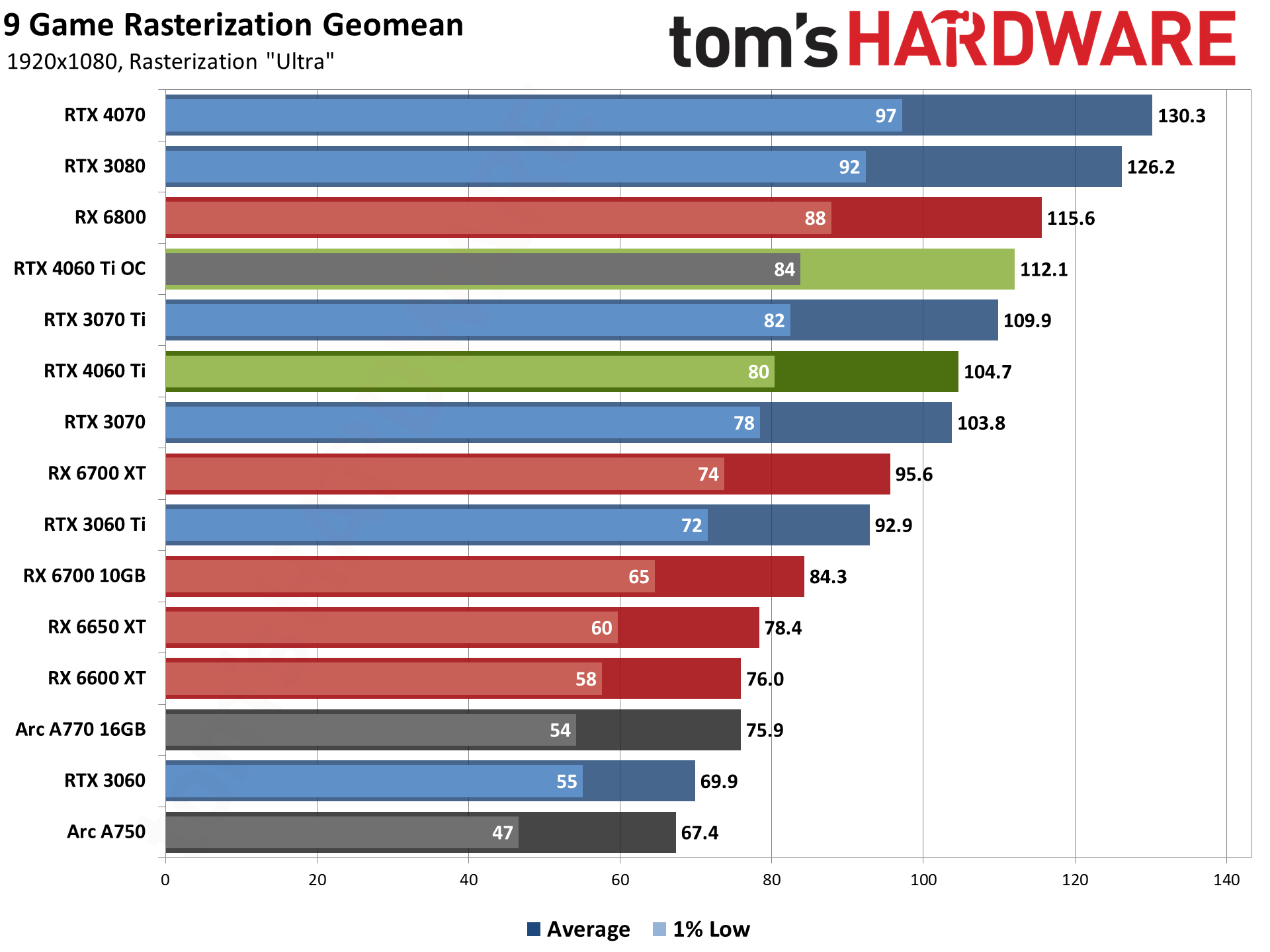
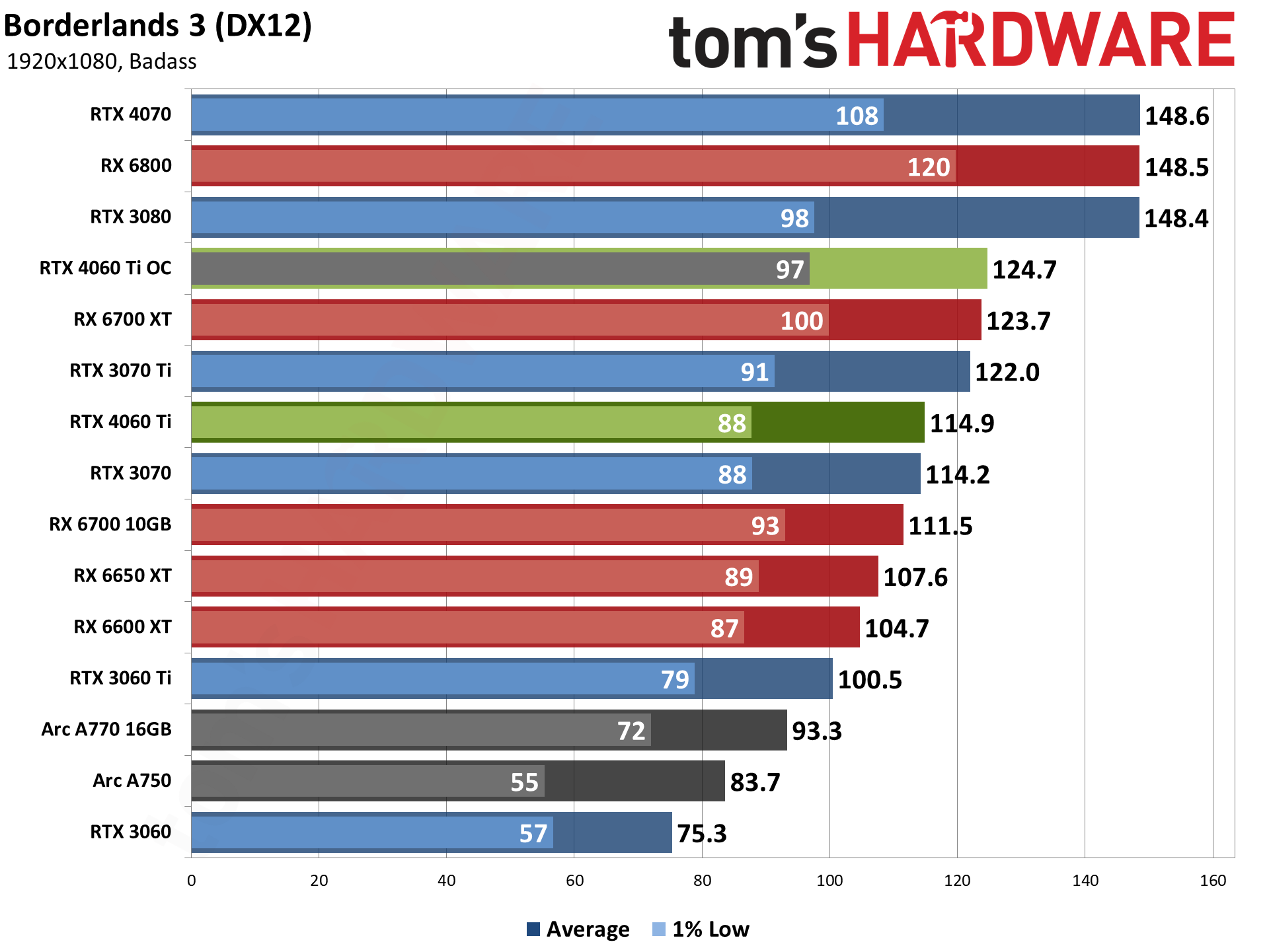
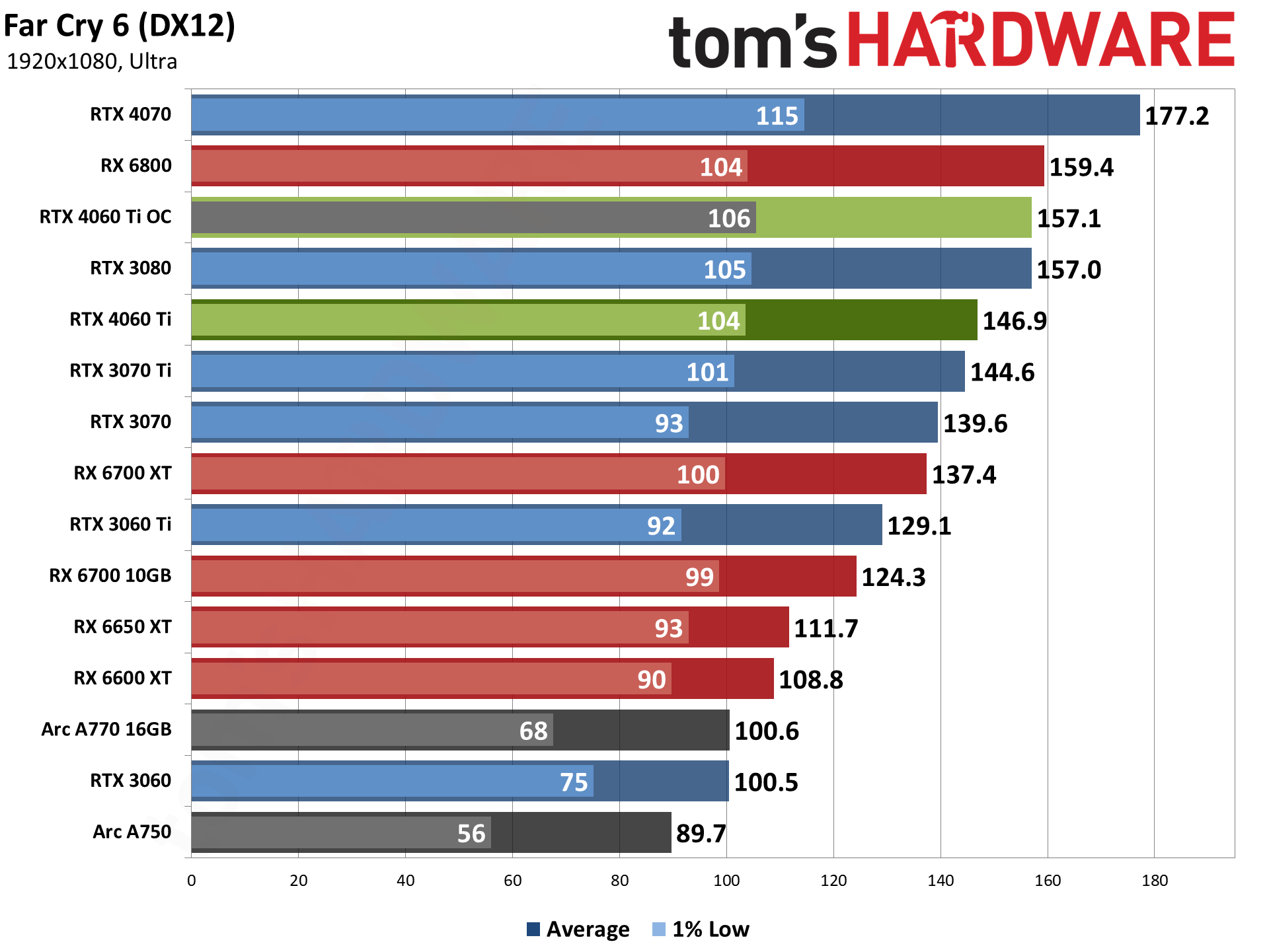
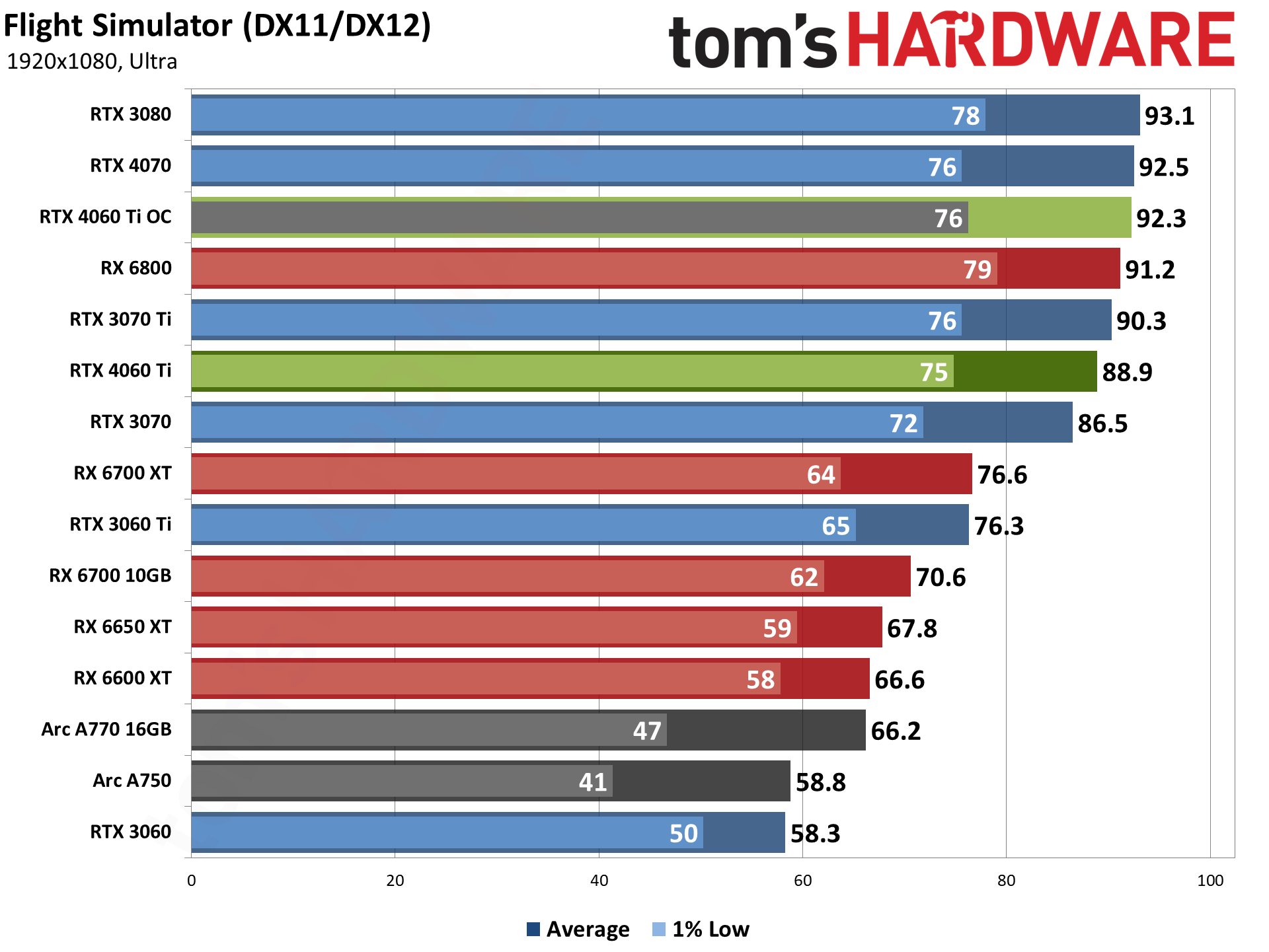
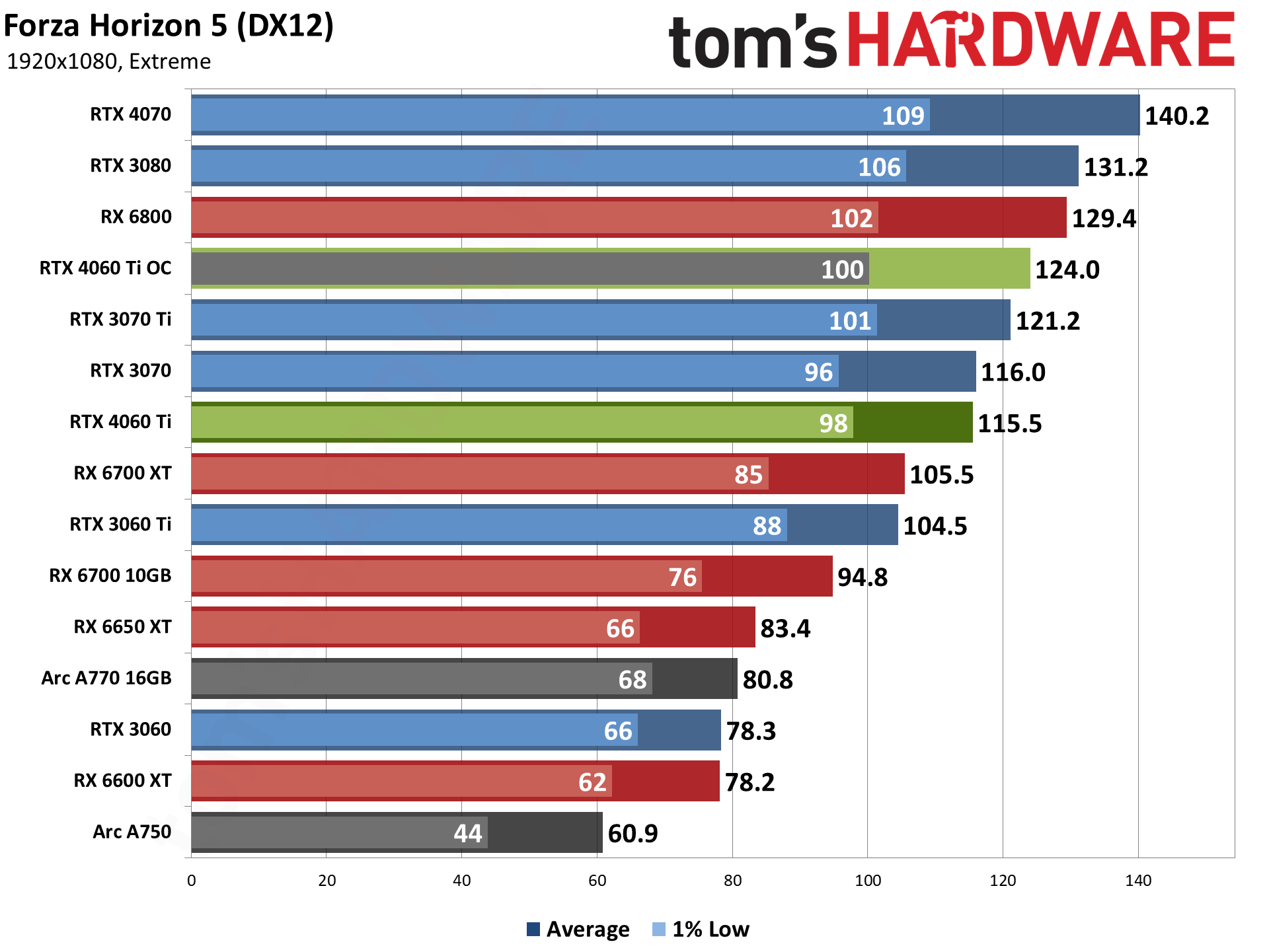
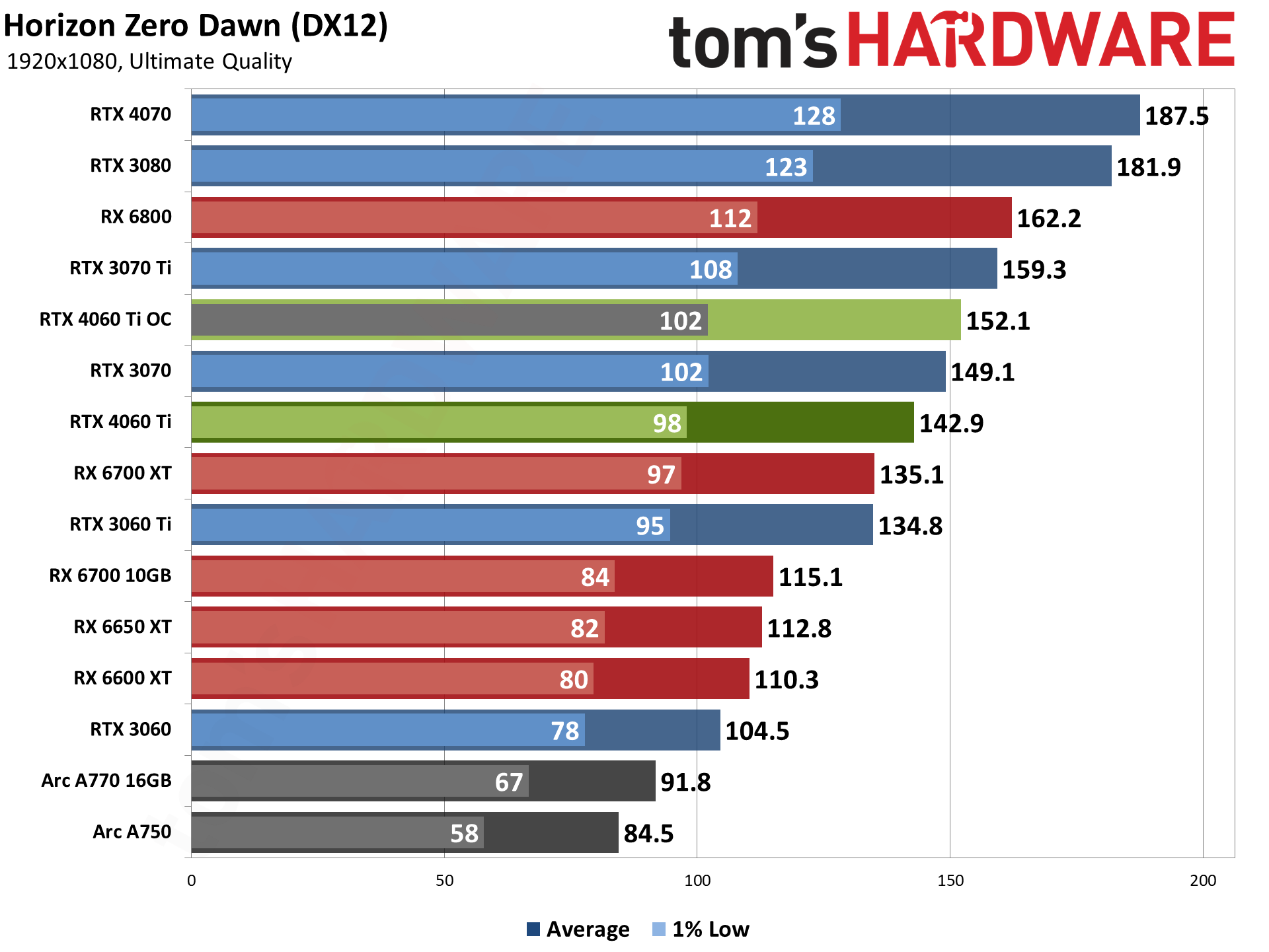
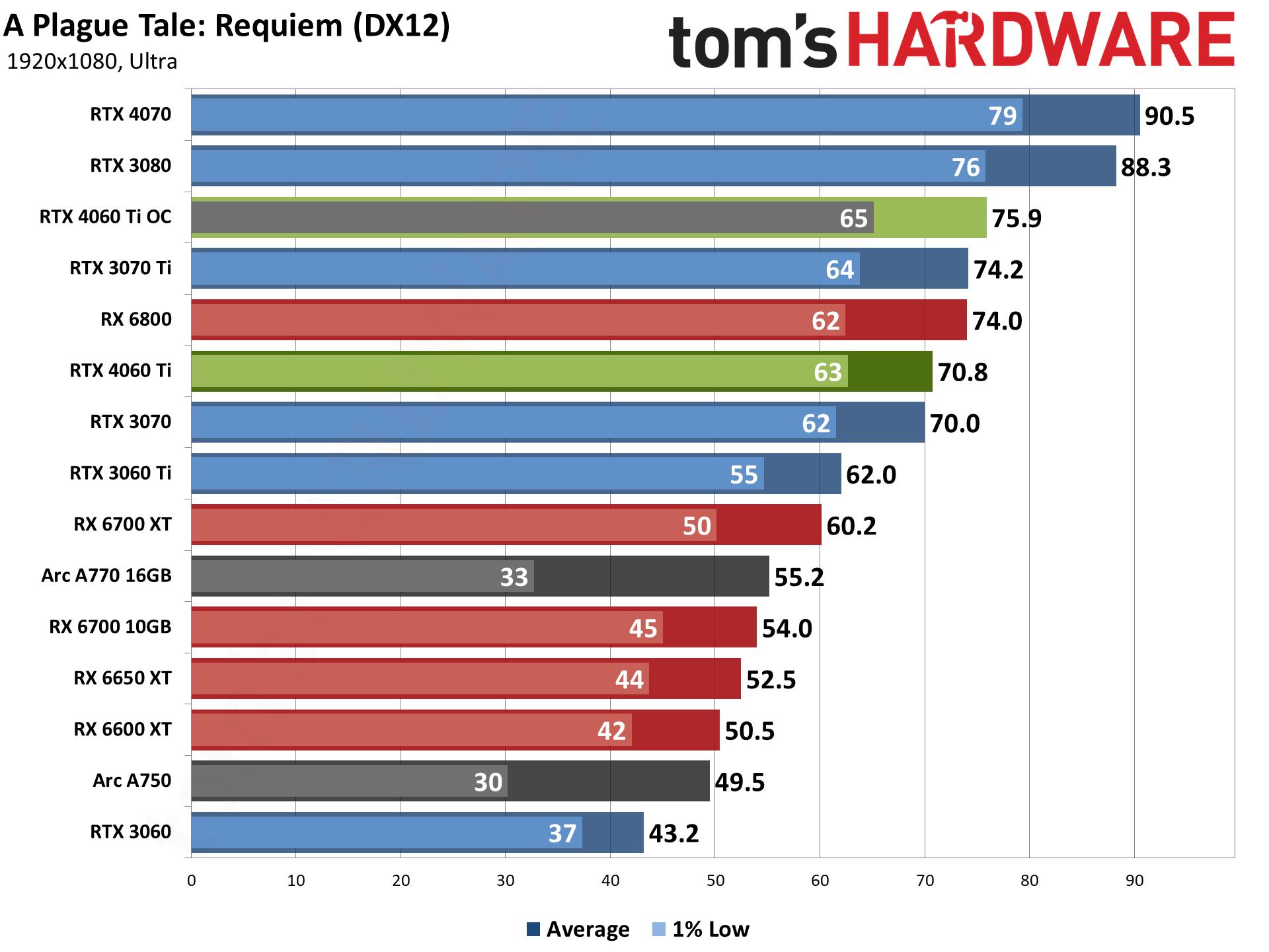
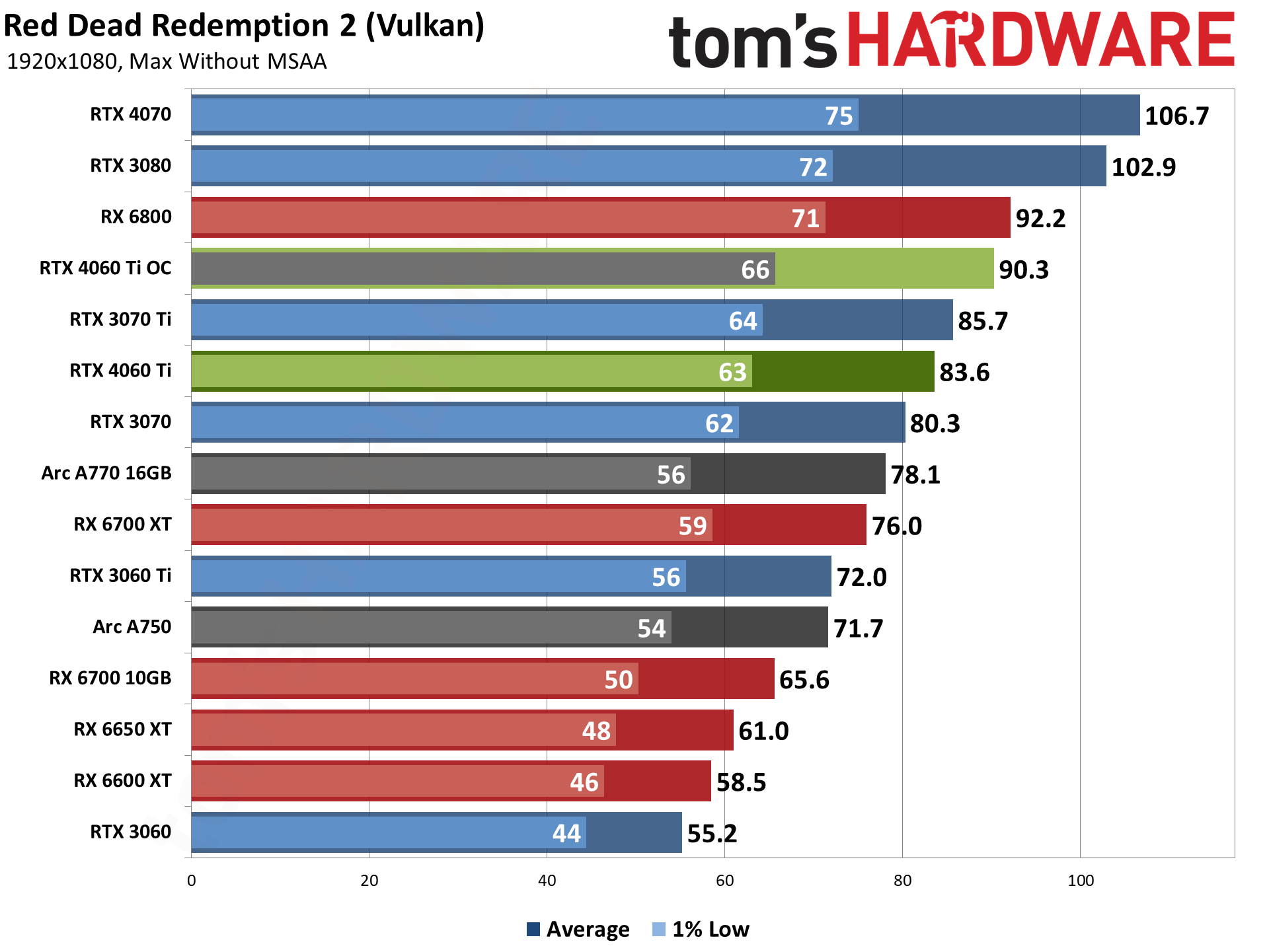
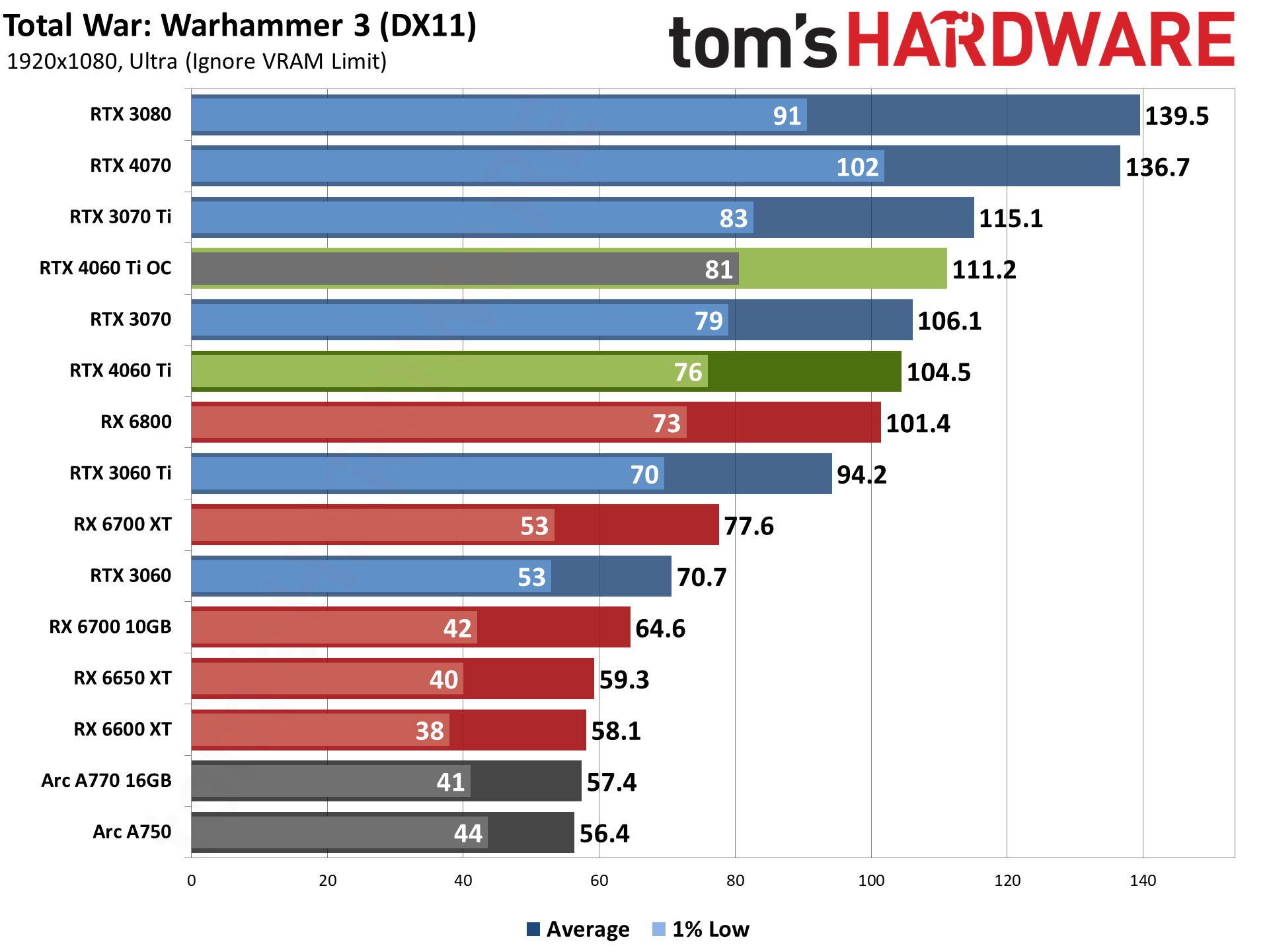
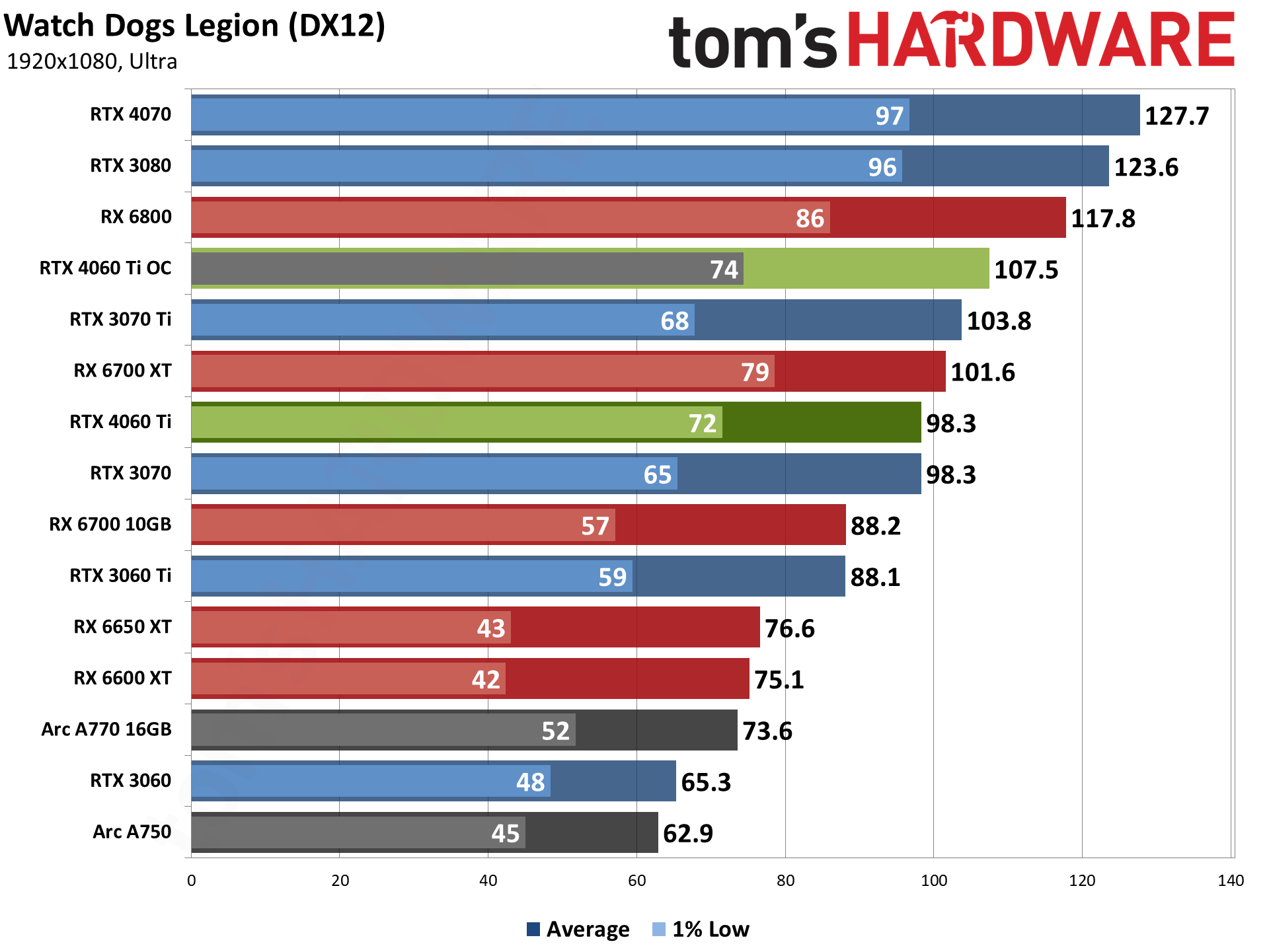
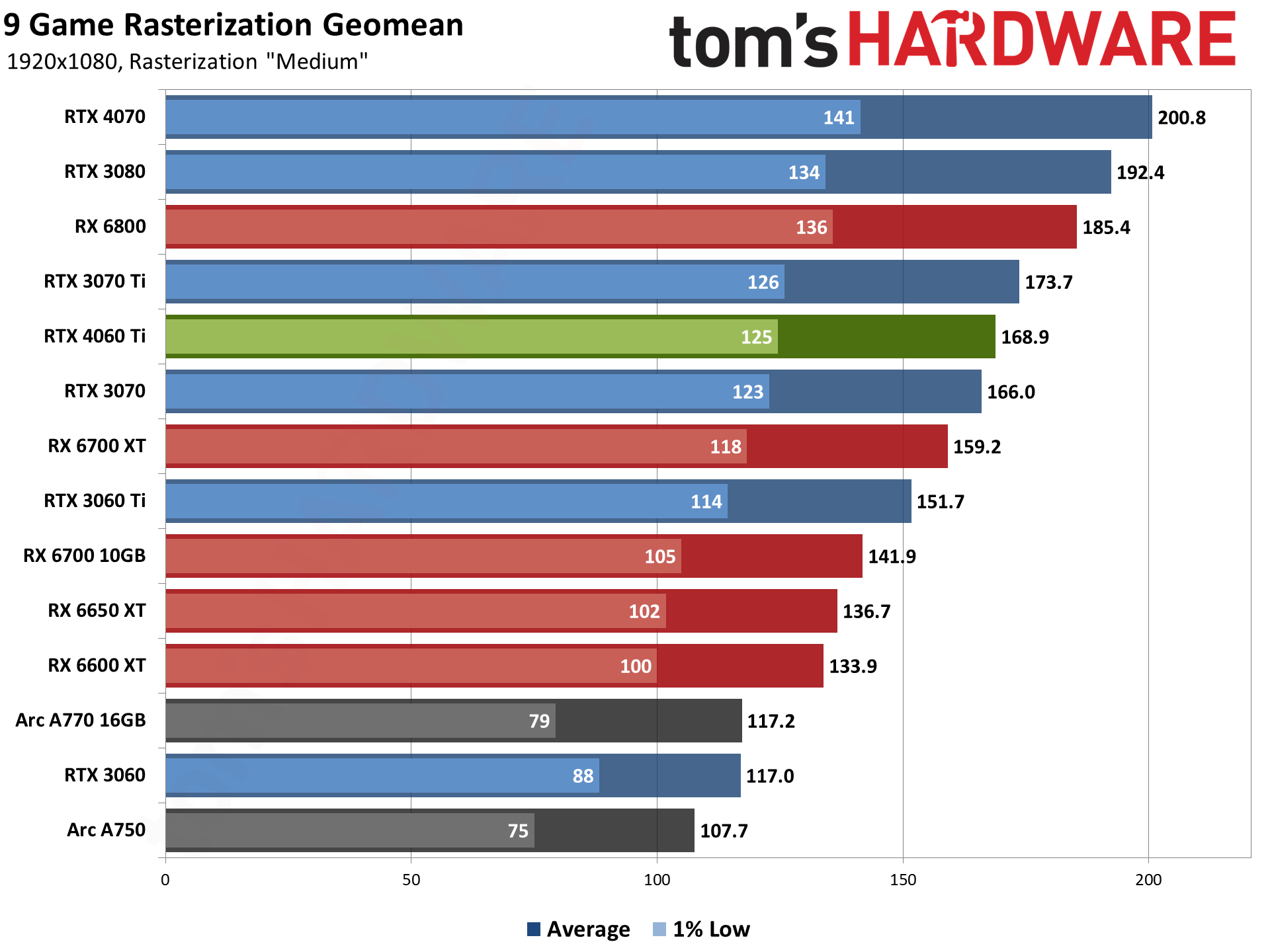
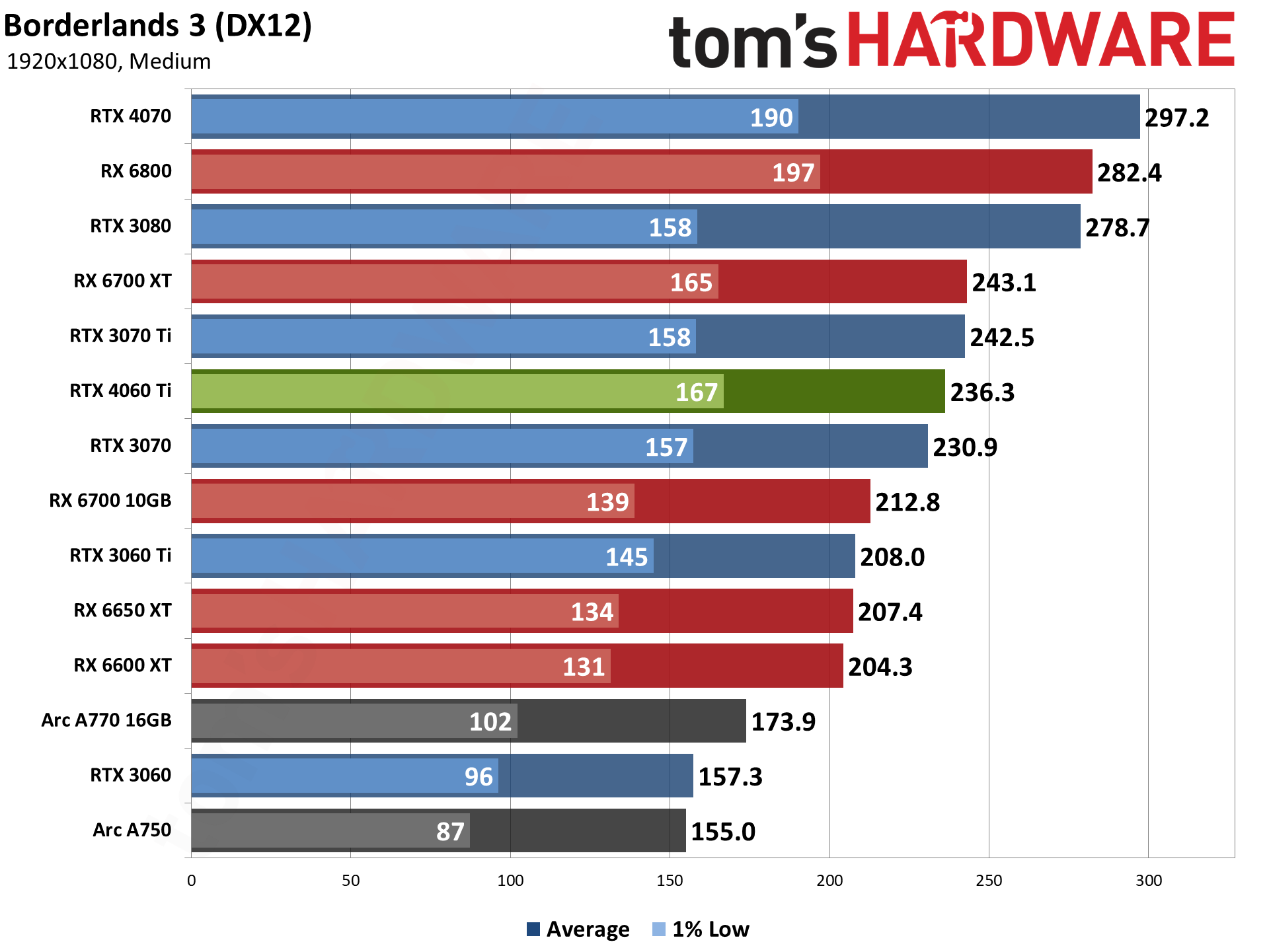
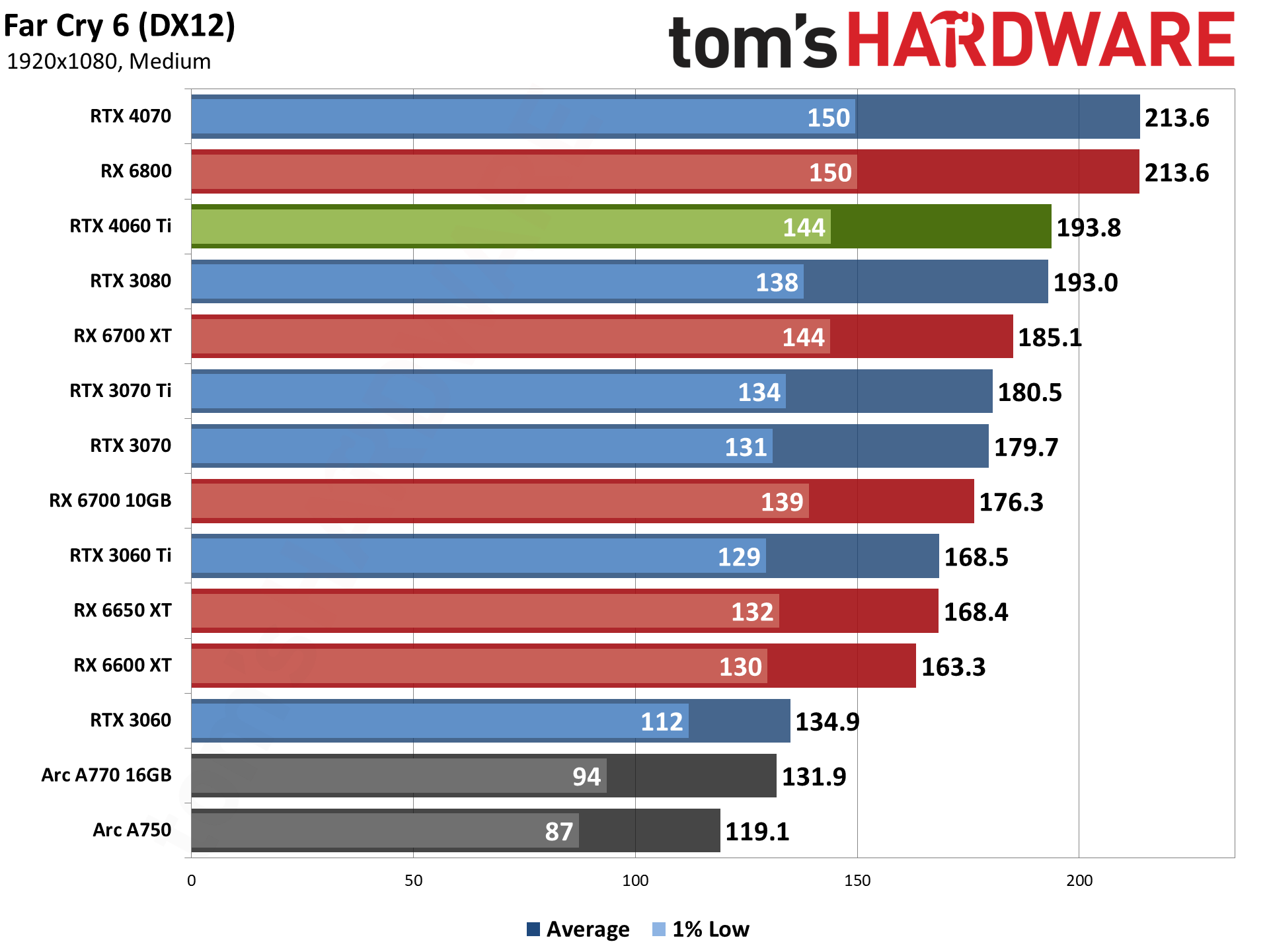
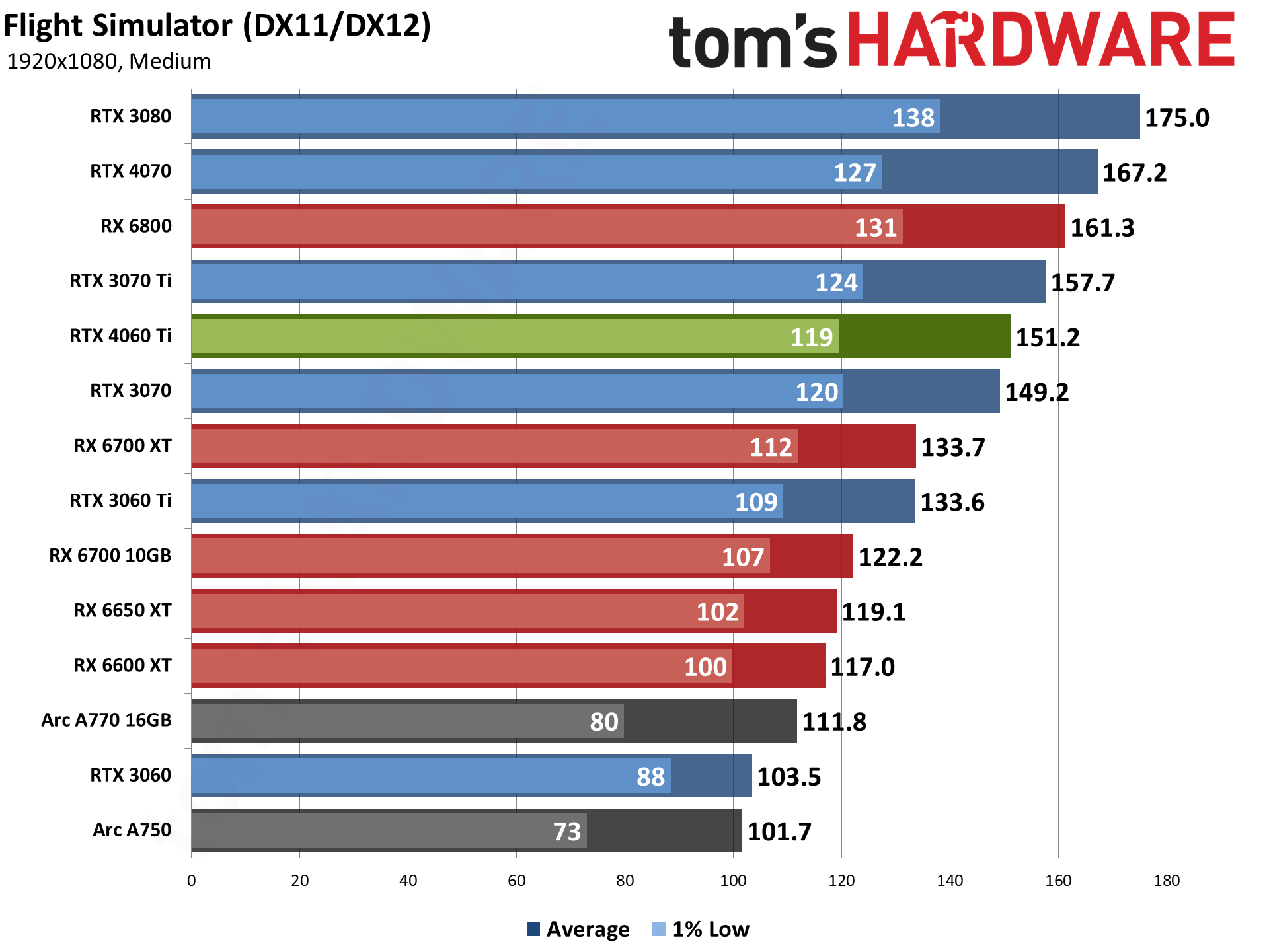
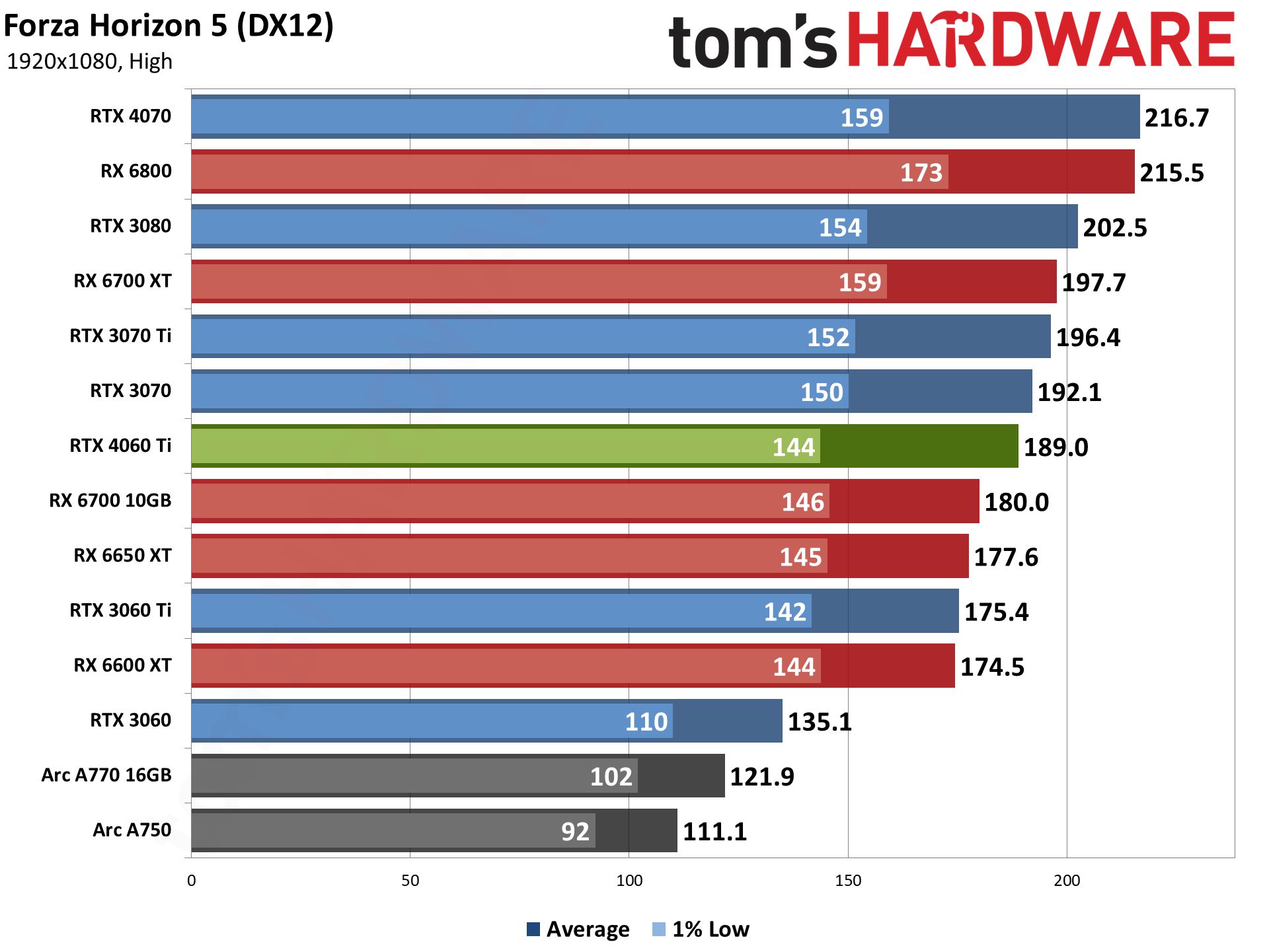
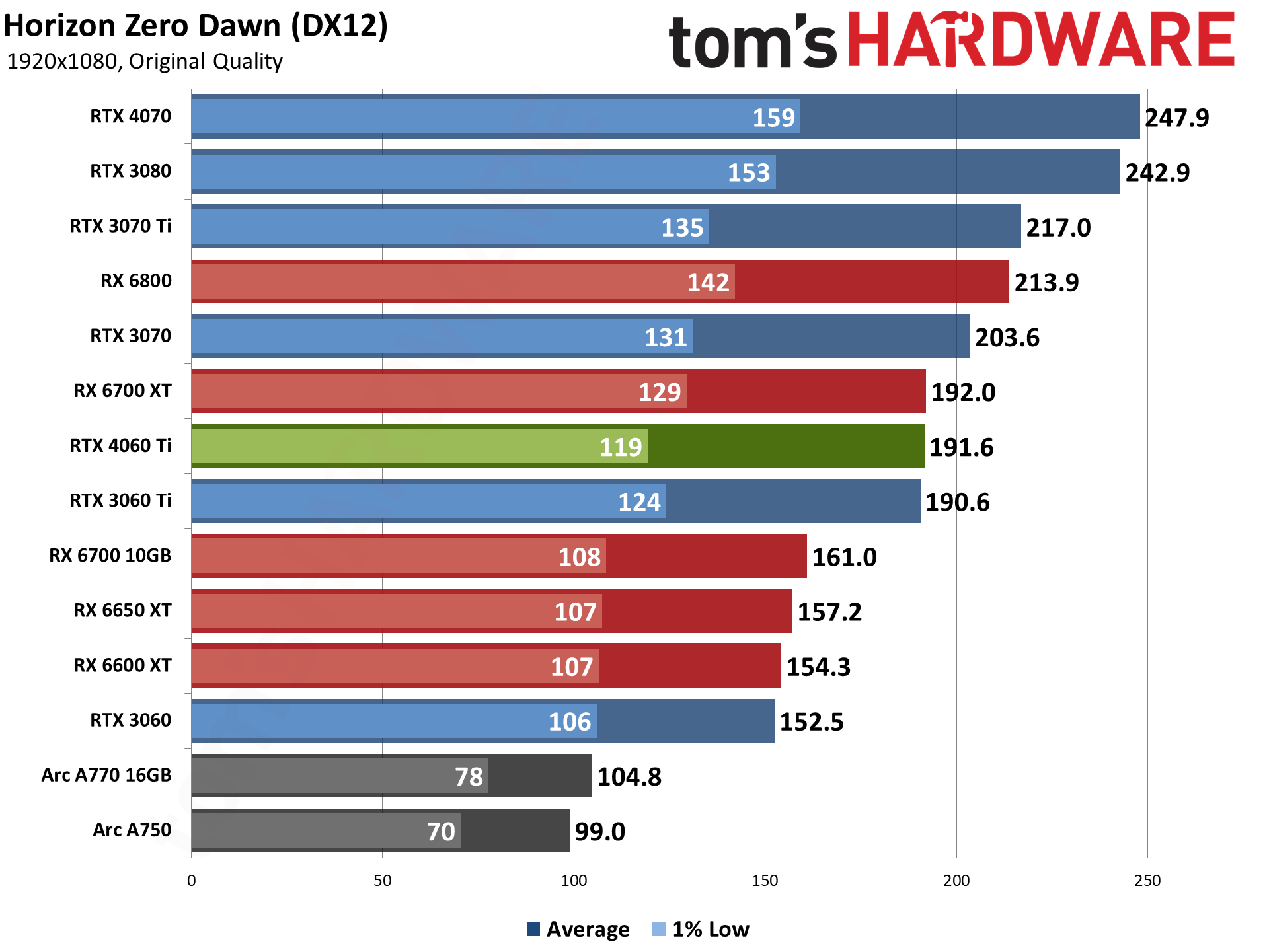
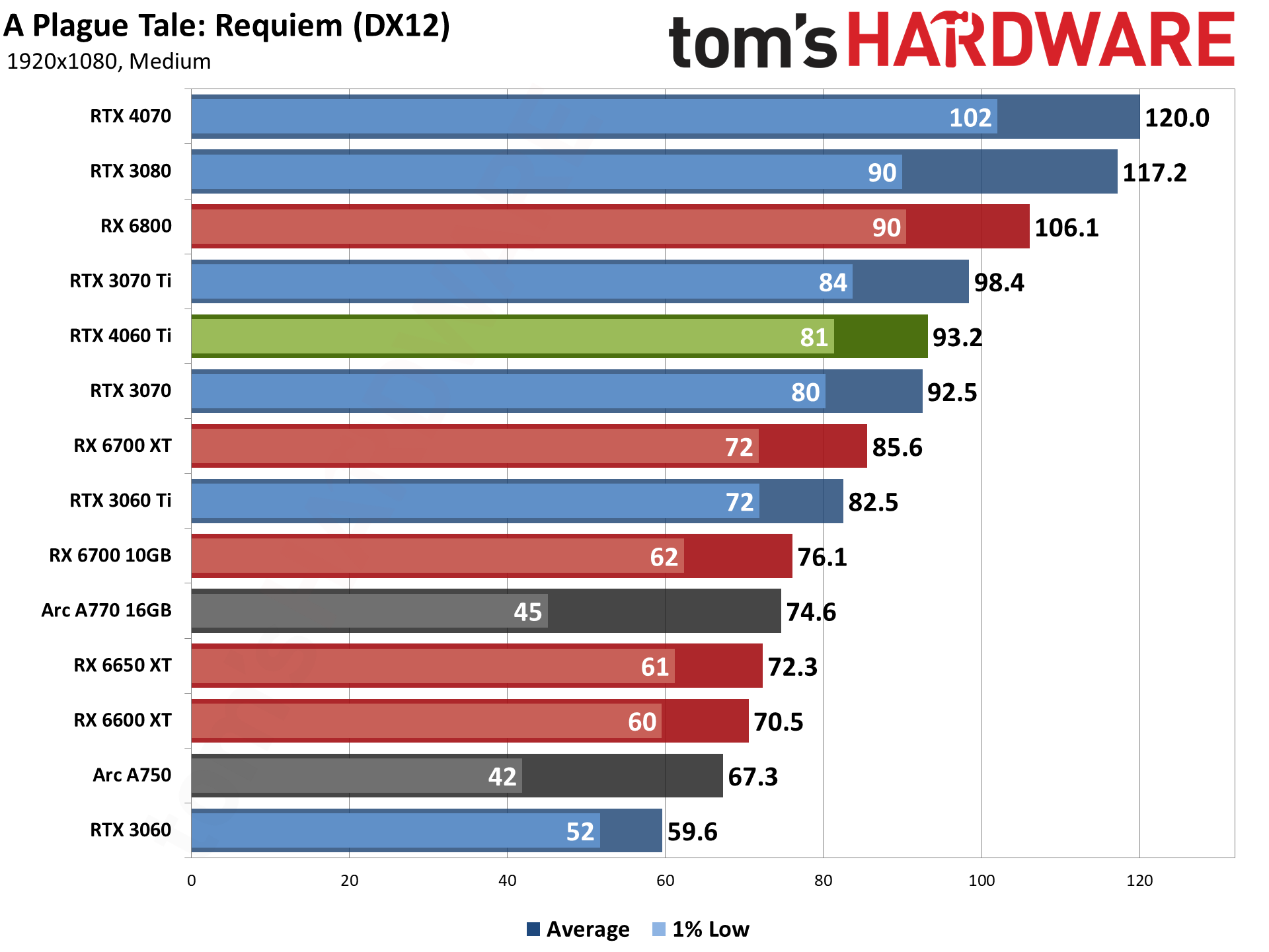
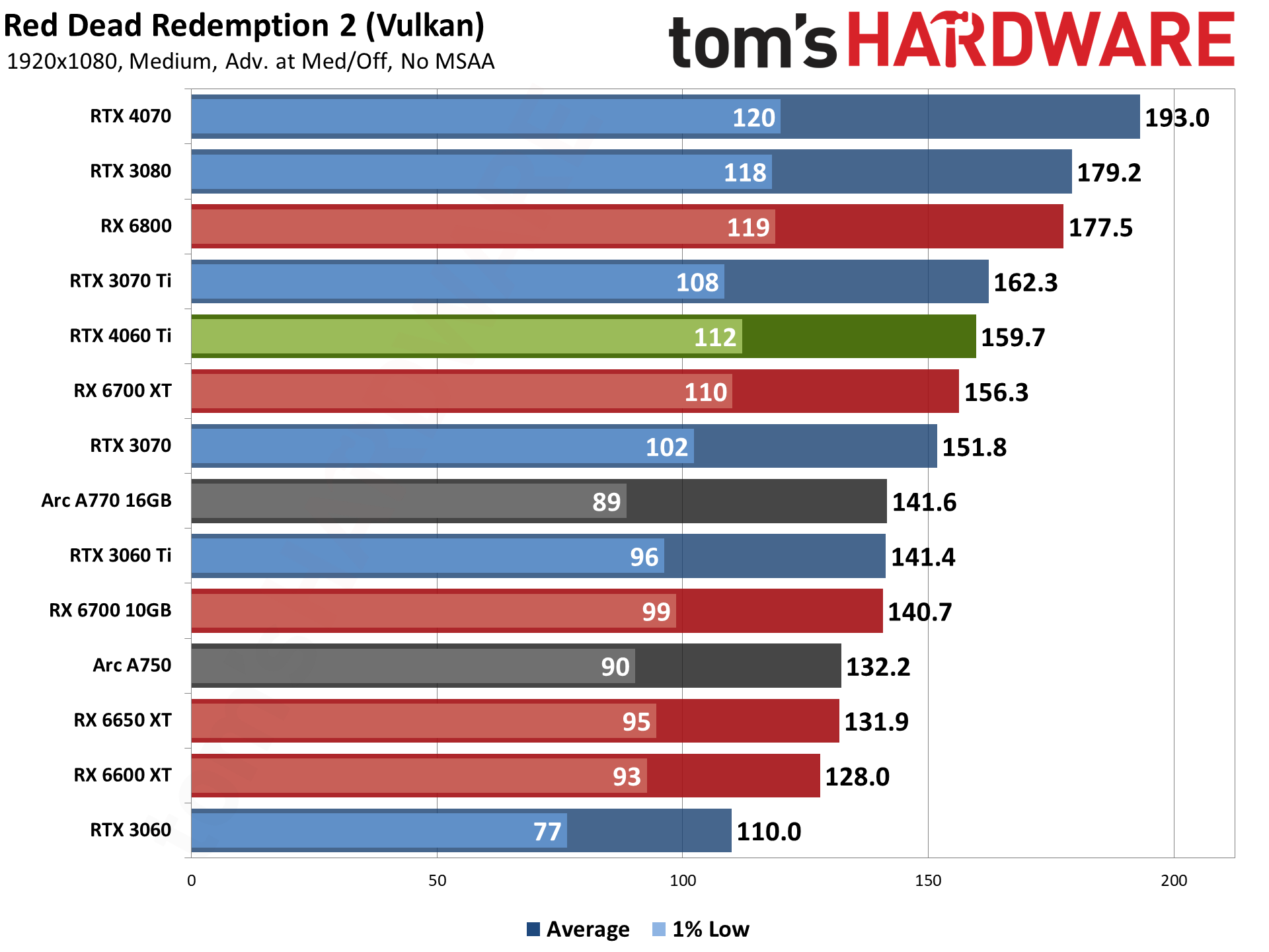

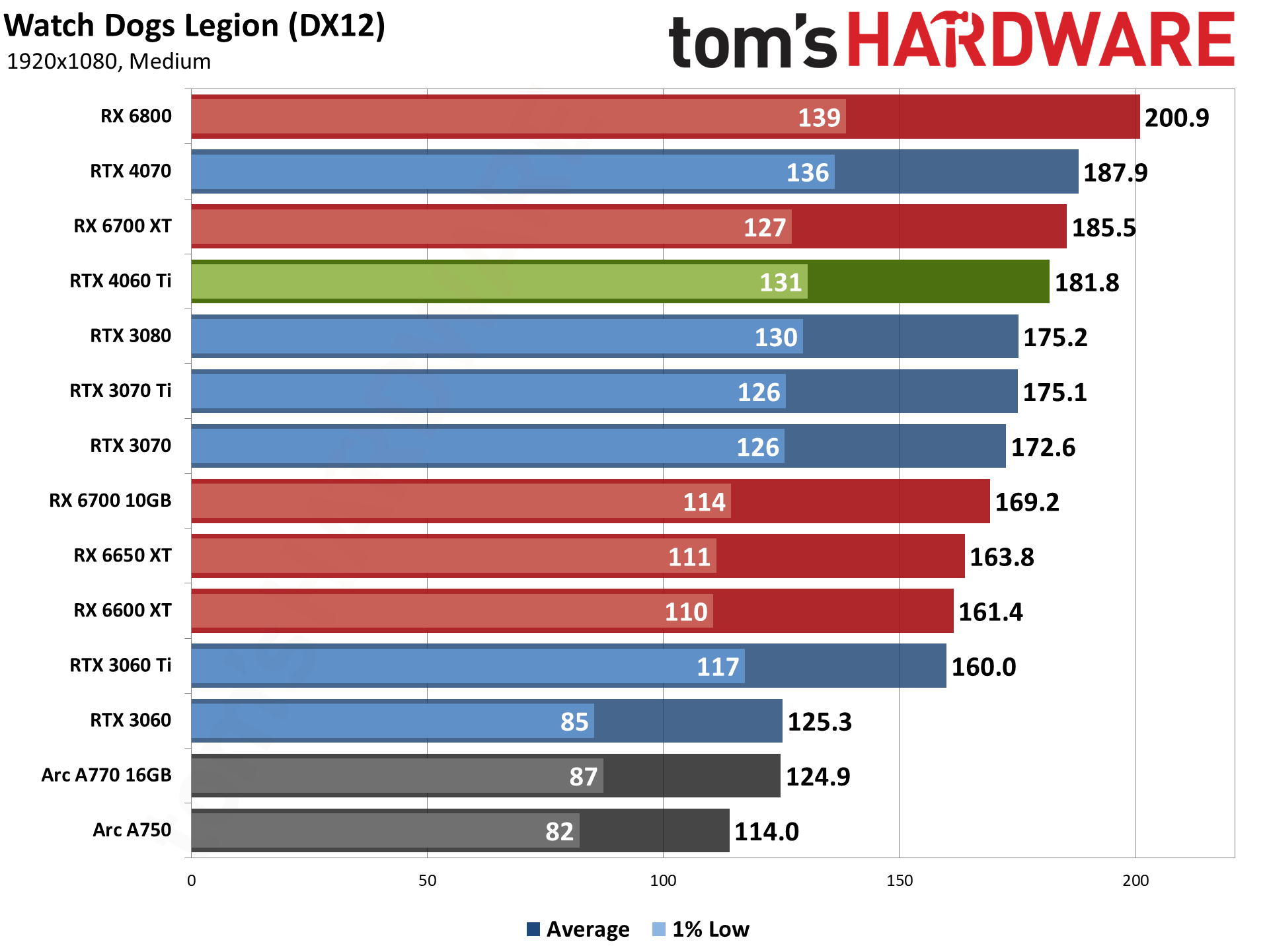
AMD's GPUs move up the charts when we leave out ray tracing, but the 4060 Ti still comes in just ahead of the RTX 3070. It also leads the RX 6700 XT, though that's now a less expensive card by $50 or so. Compared to its predecessor, the RTX 3060 Ti, the margin of victory remains mostly the same at 13% for 1080p ultra, and a slightly lower 11% for 1080p medium.
It's technically a win for the new graphics card, but not a resounding victory by any stretch. As we mentioned in the intro, new mainstream cards don't really deliver new levels of performance. What they do is bring higher performance at lower prices, but in this case it's only an incremental increase.
We normally say a 20% improvement is the minimum you'd need to really feel the difference. Compared to the RTX 3060 Ti, at least without enabling DLSS 3 and Frame Generation, the 4060 Ti mostly fails to reach that level of performance. That's unfortunate, and it probably also helps explain why Nvidia isn't increasing the generational pricing by $100 or more like it did with the RTX 4070 and higher GPUs.
Across the nine rasterization games, at 1080p ultra the 4060 Ti leads the previous generation 3060 Ti by anywhere from 6% (Horizon Zero Dawn) to 17% (Flight Simulator). At 1080p medium, the range is from 1% (HZD) to 15% (Far Cry 6).
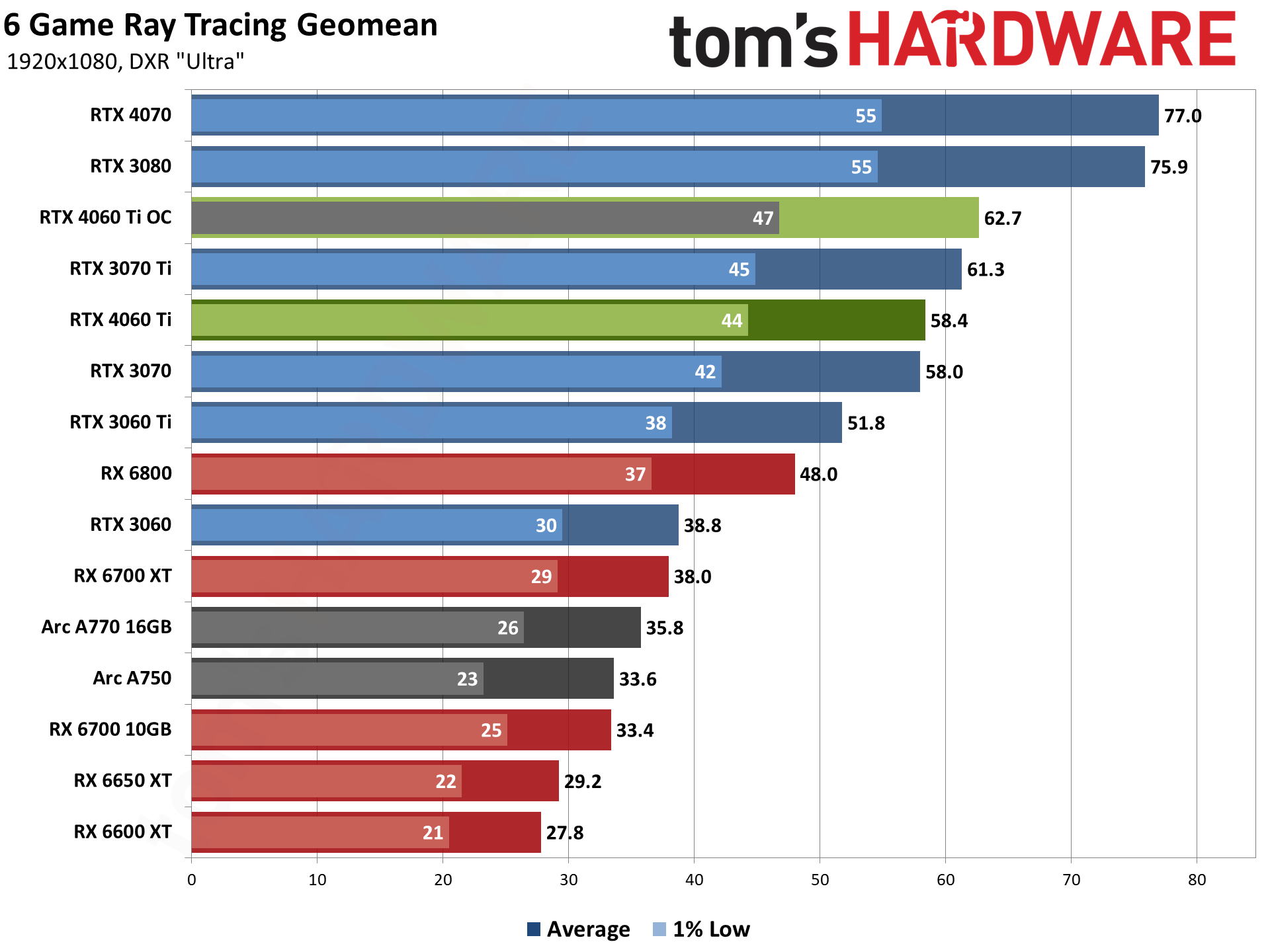
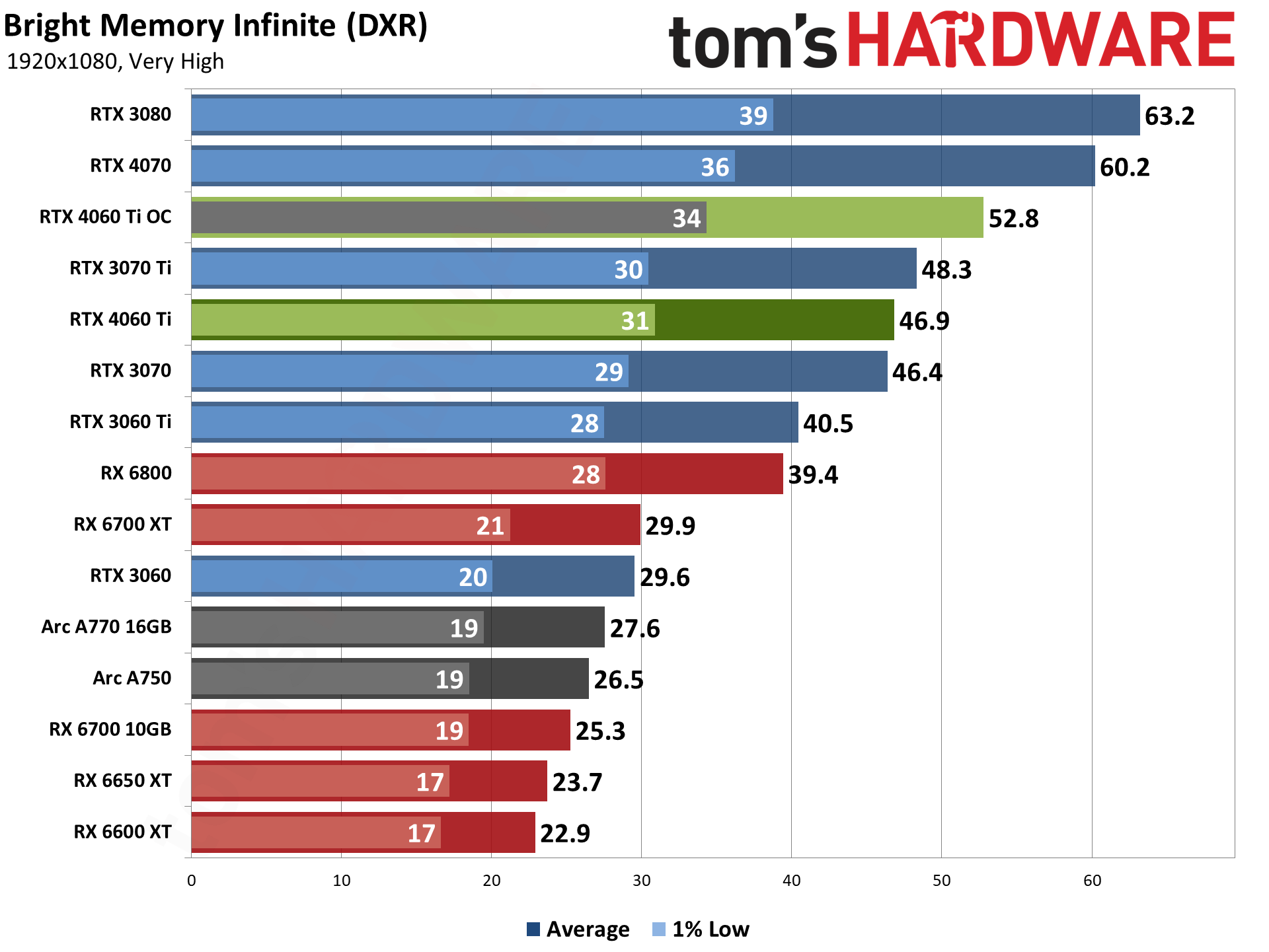
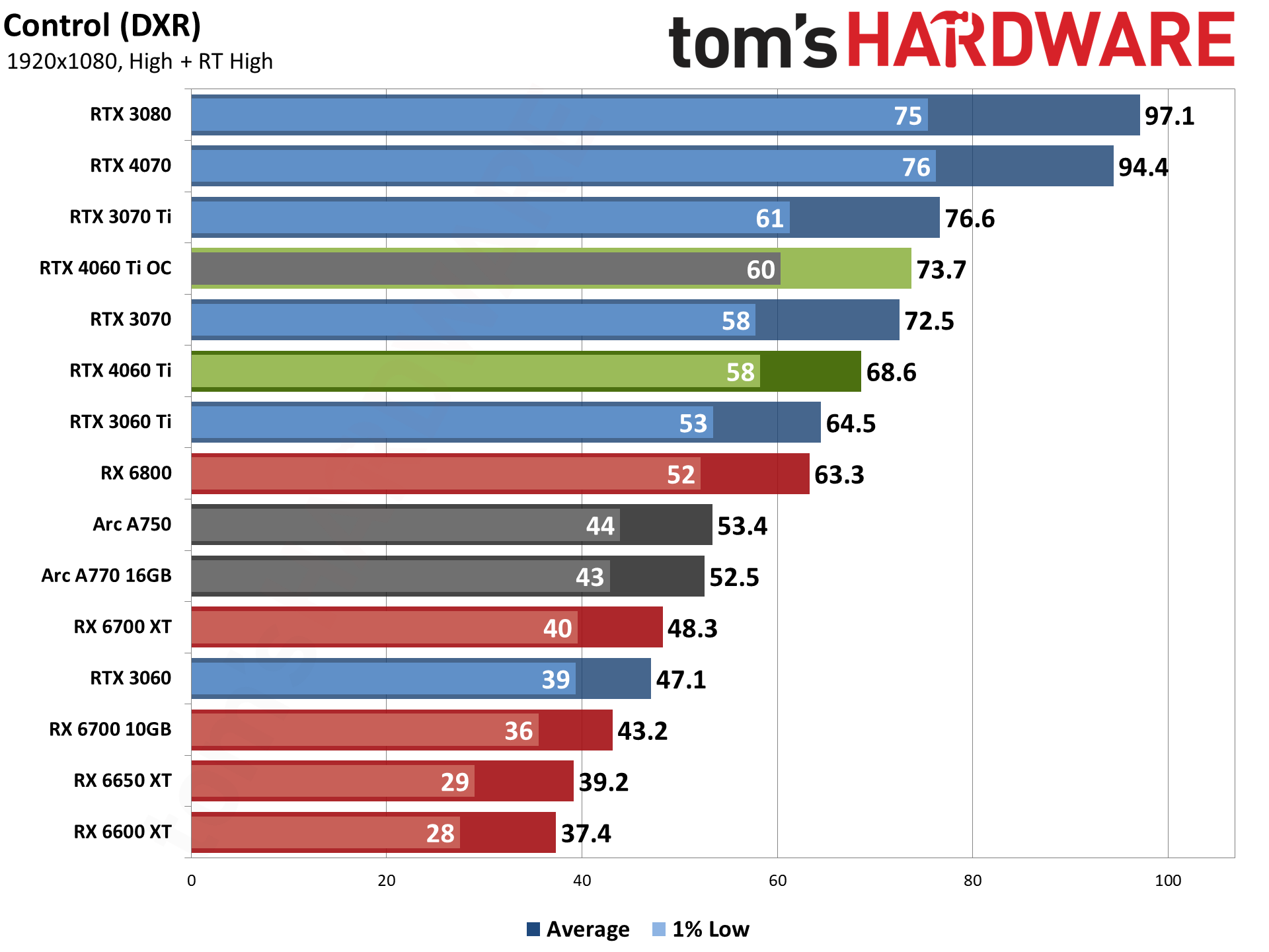
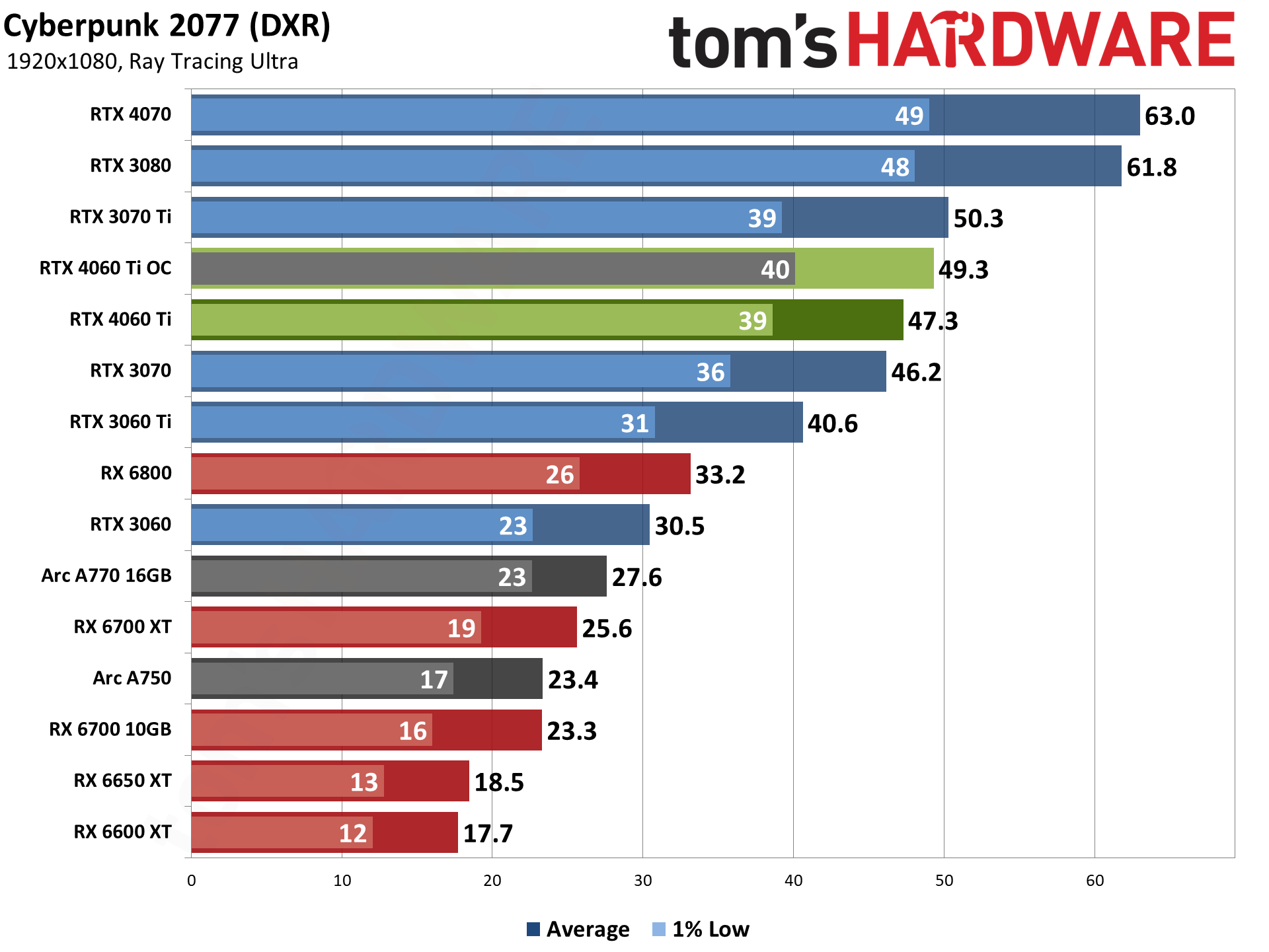
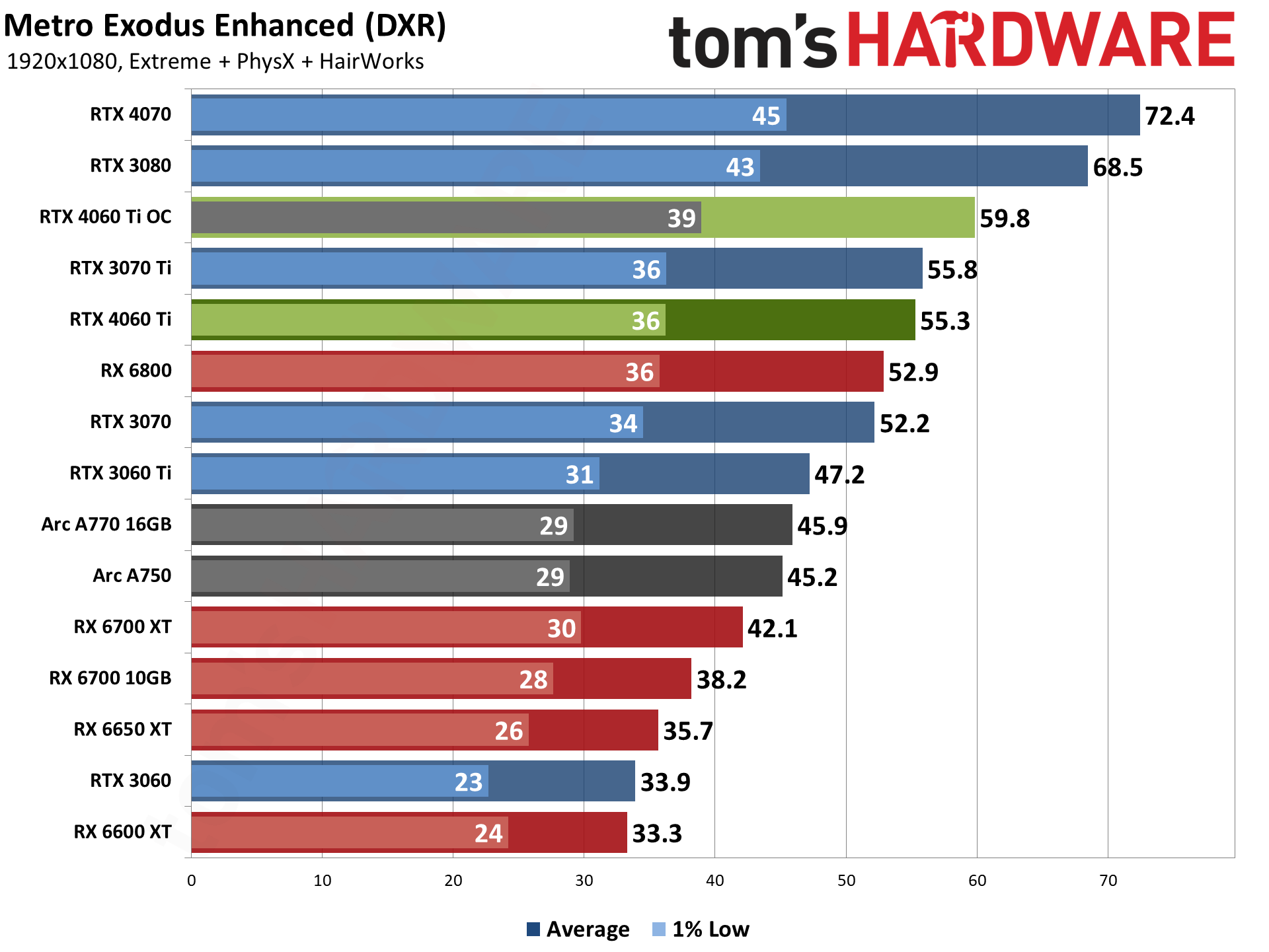
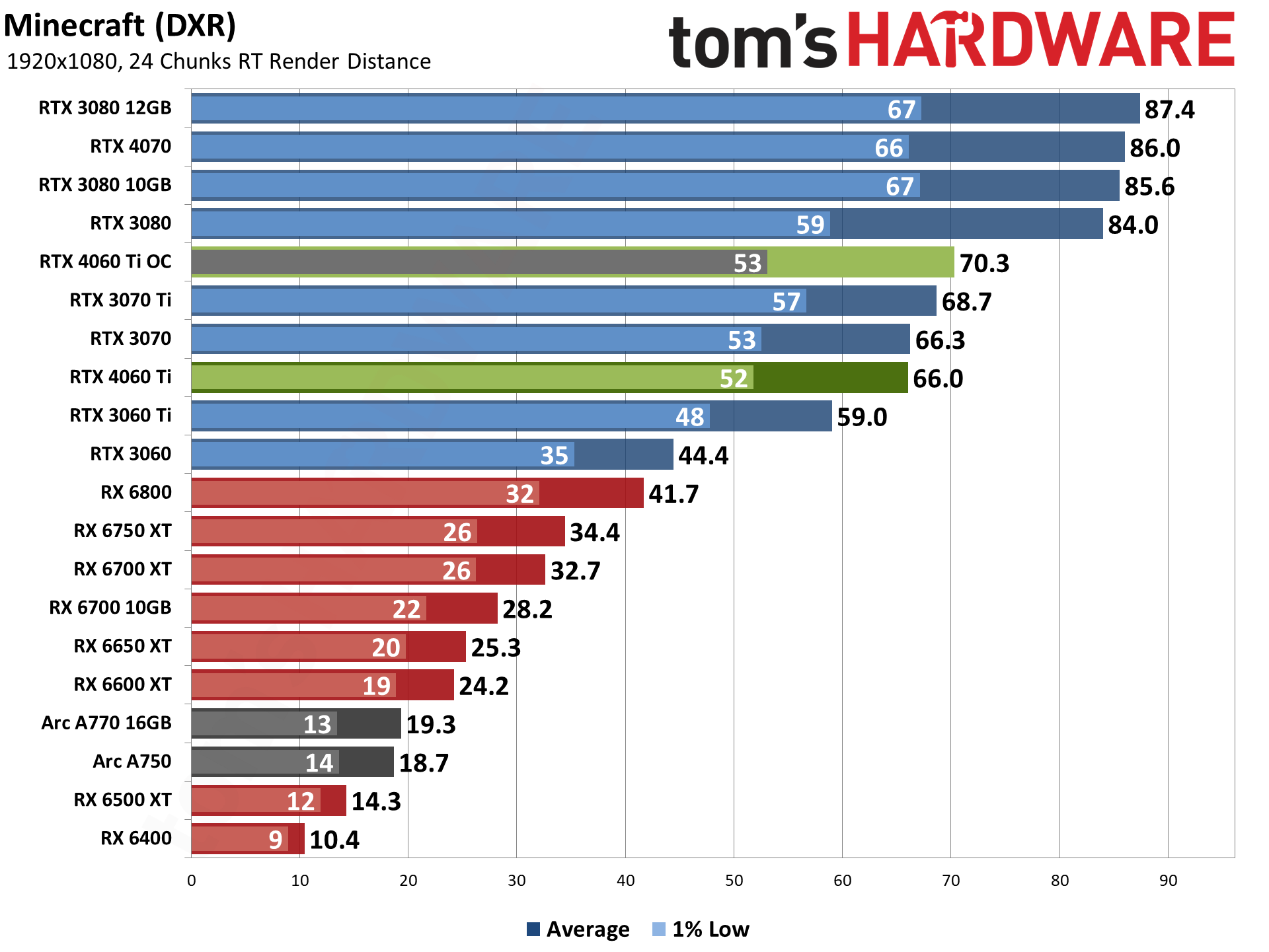
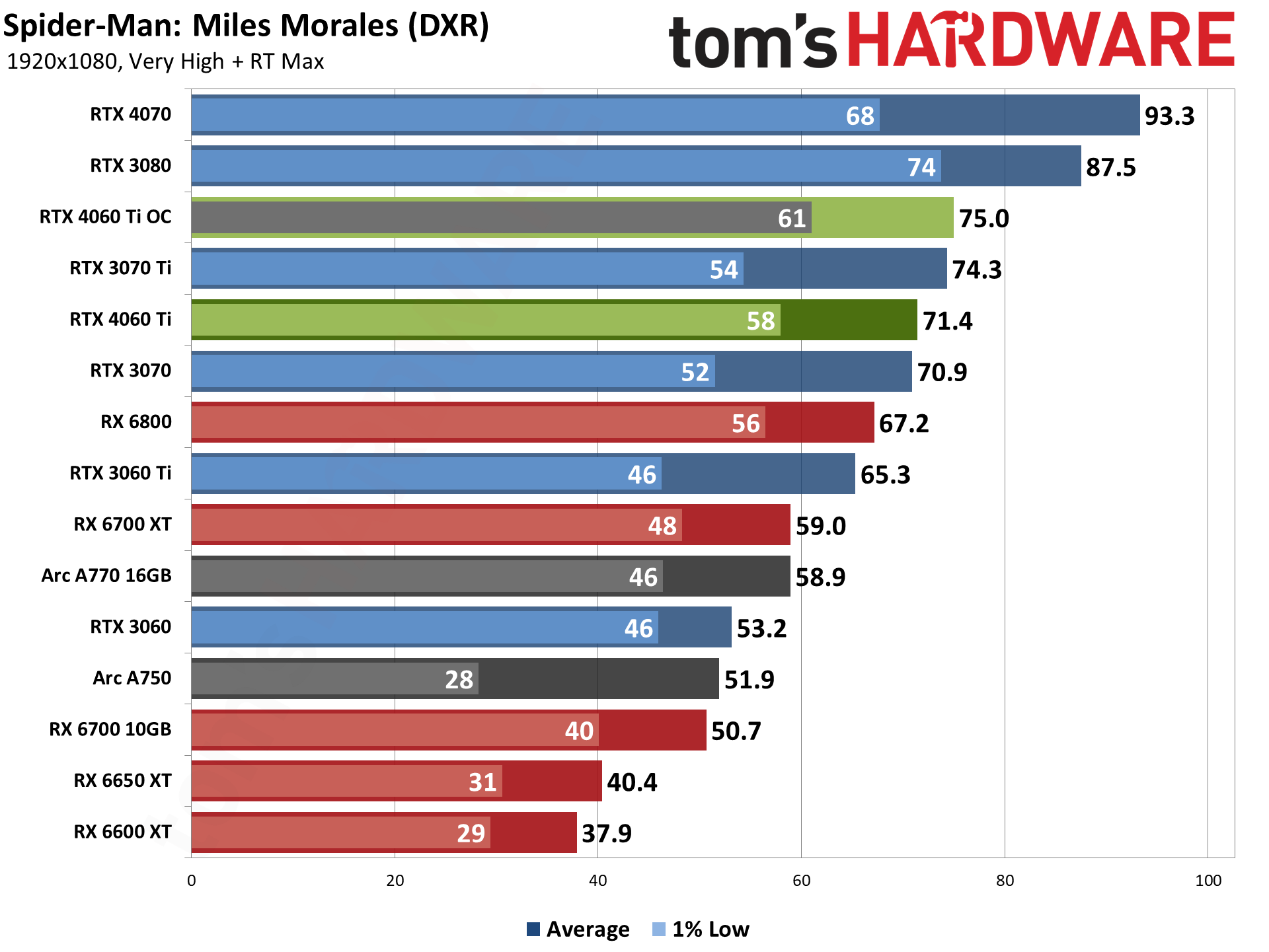
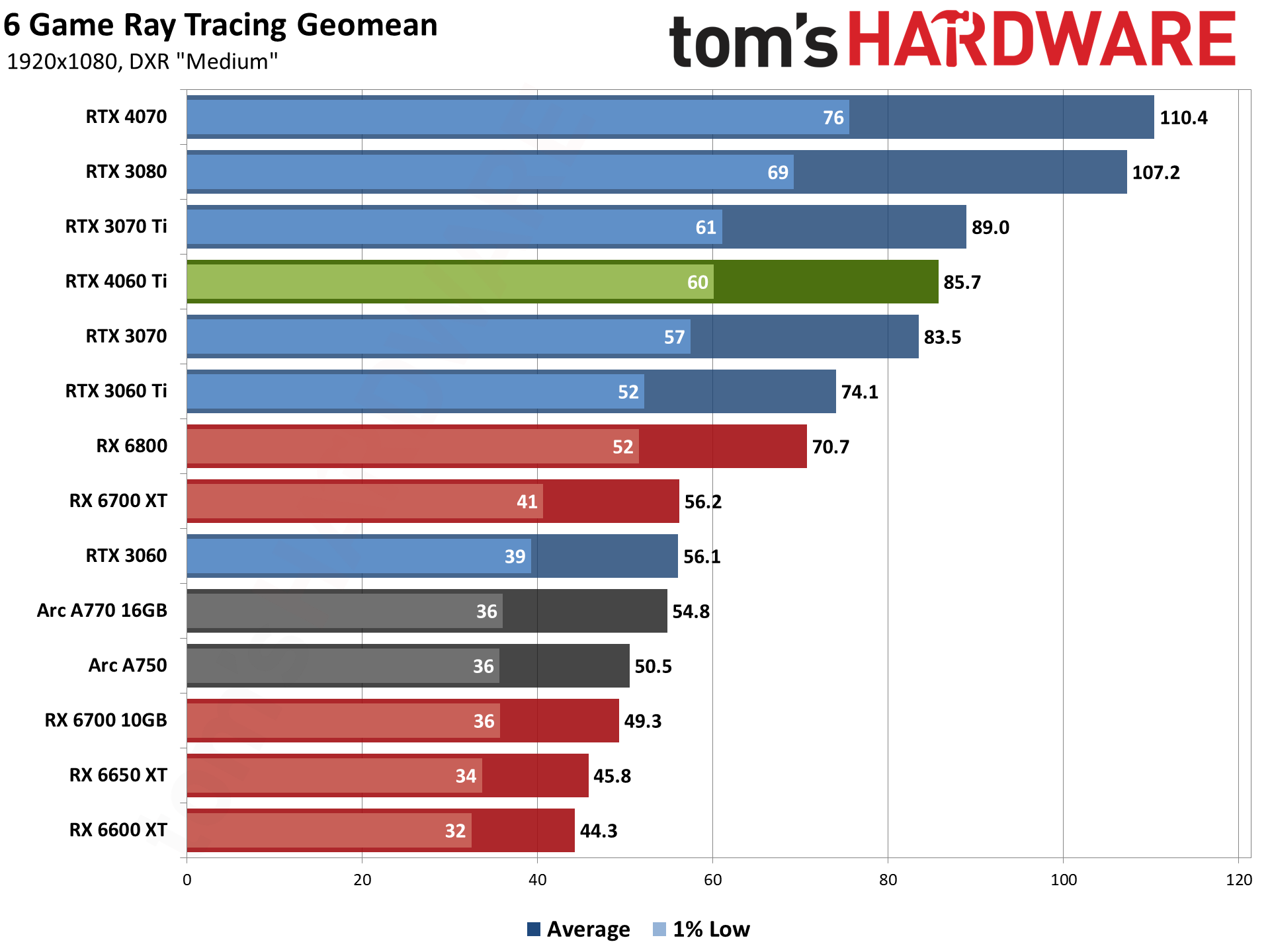
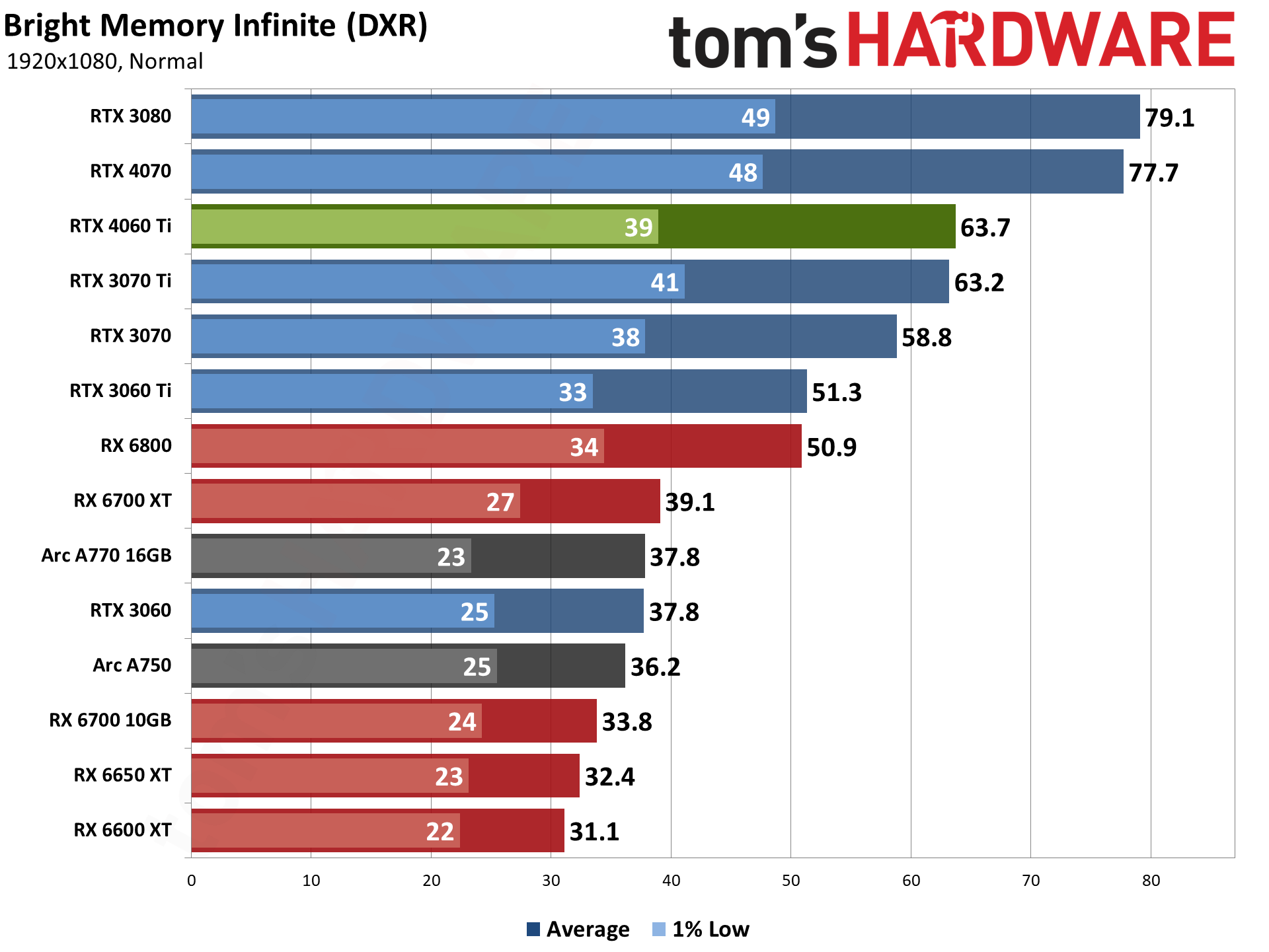
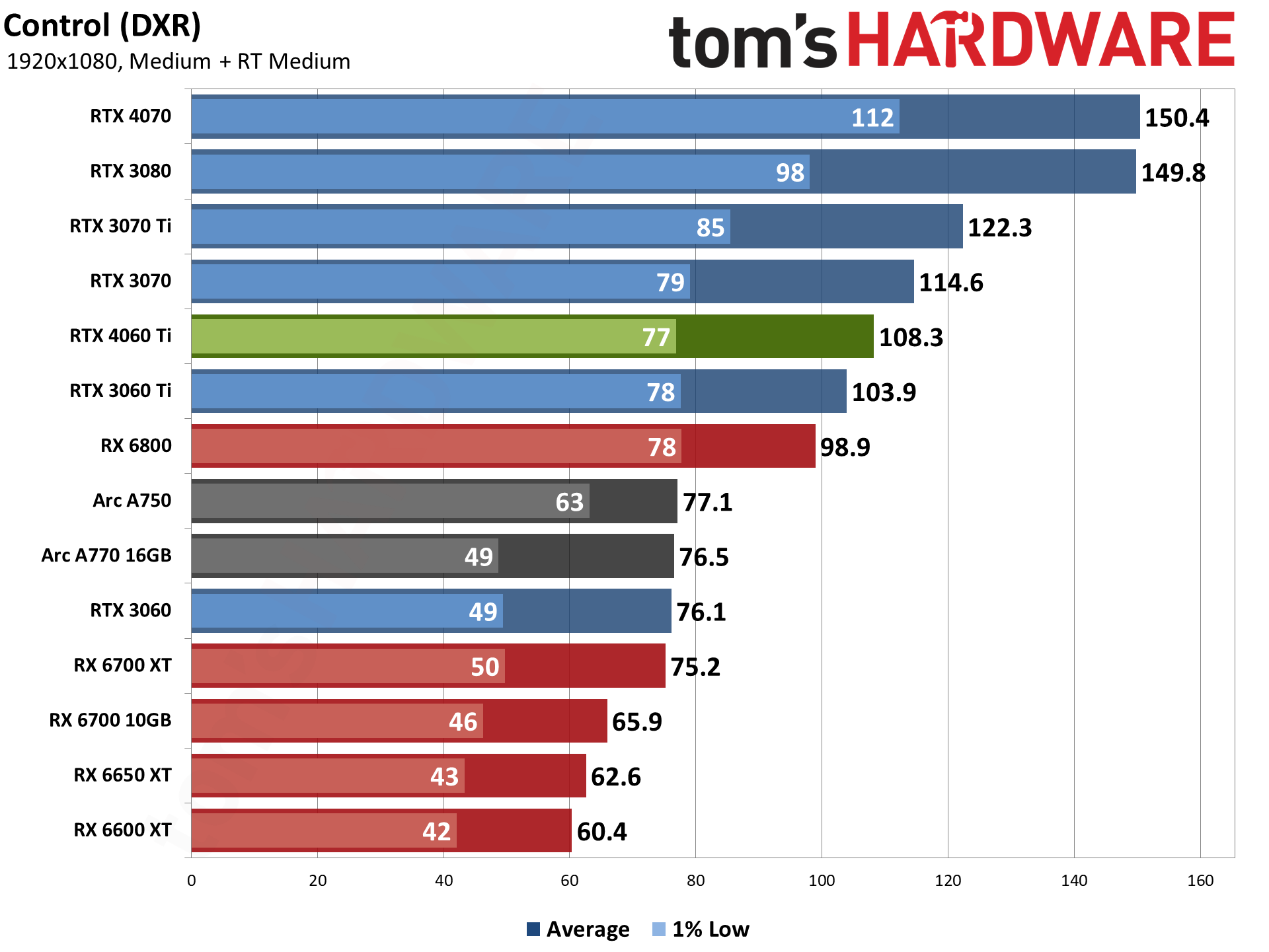
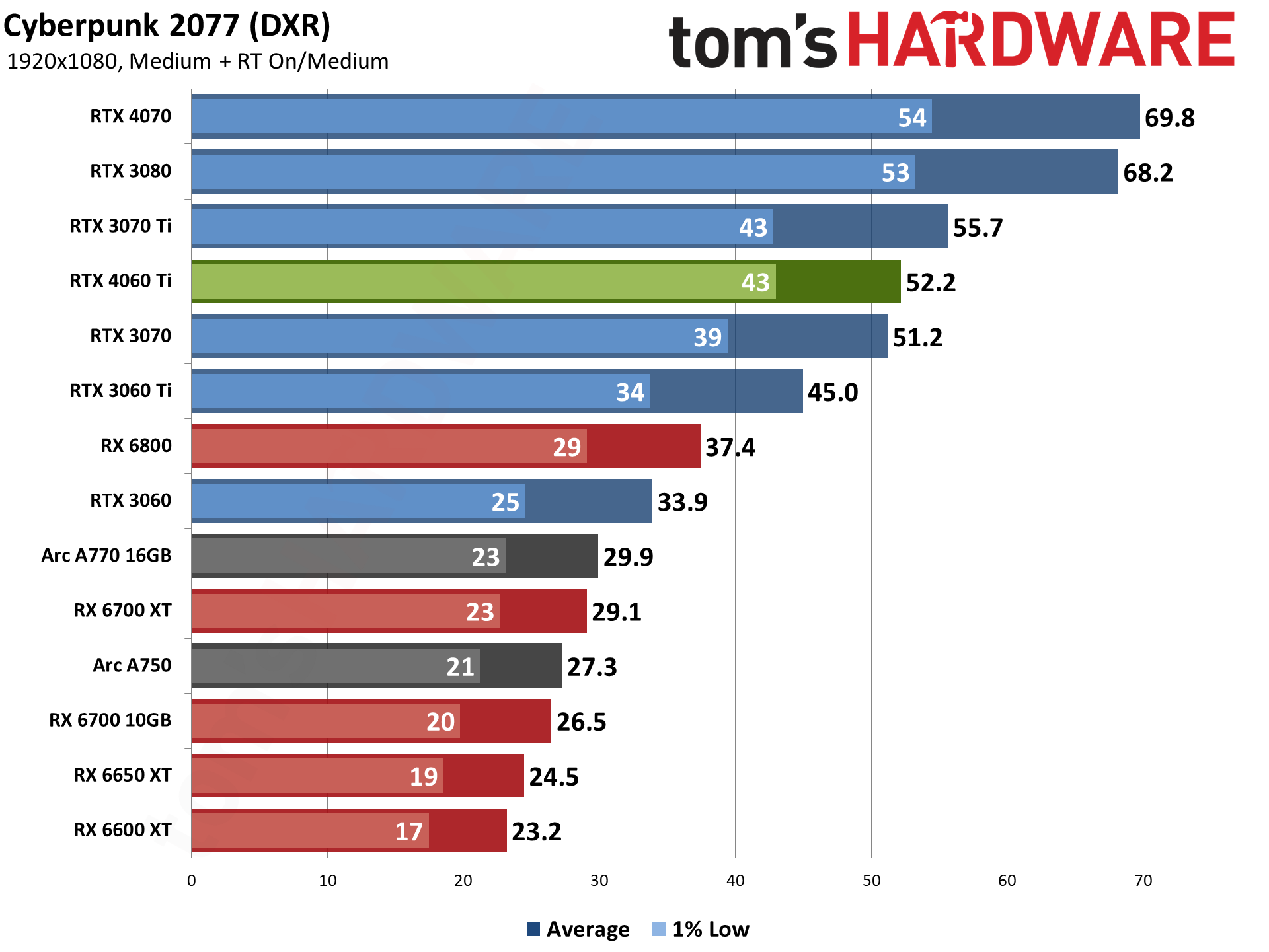
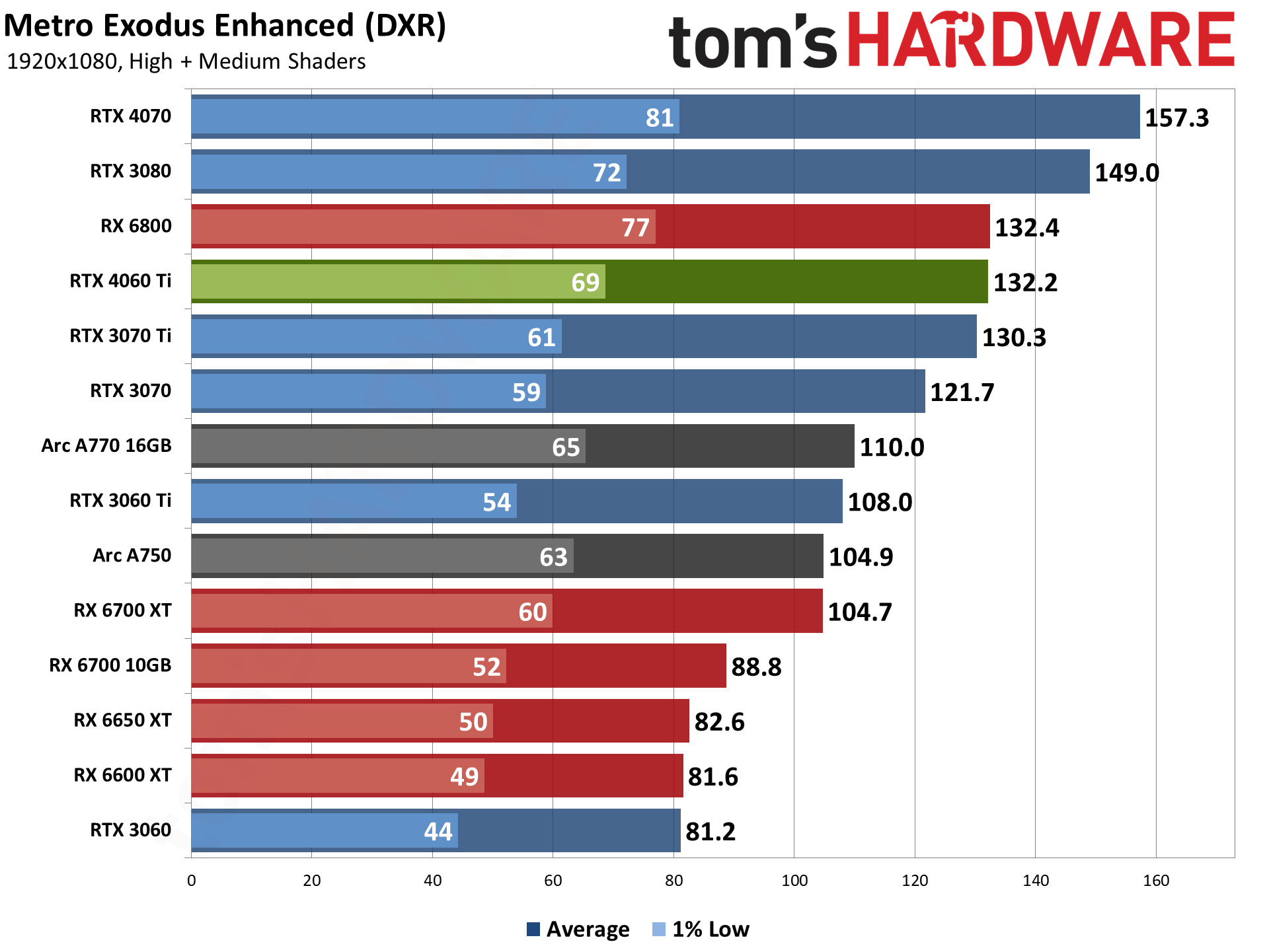
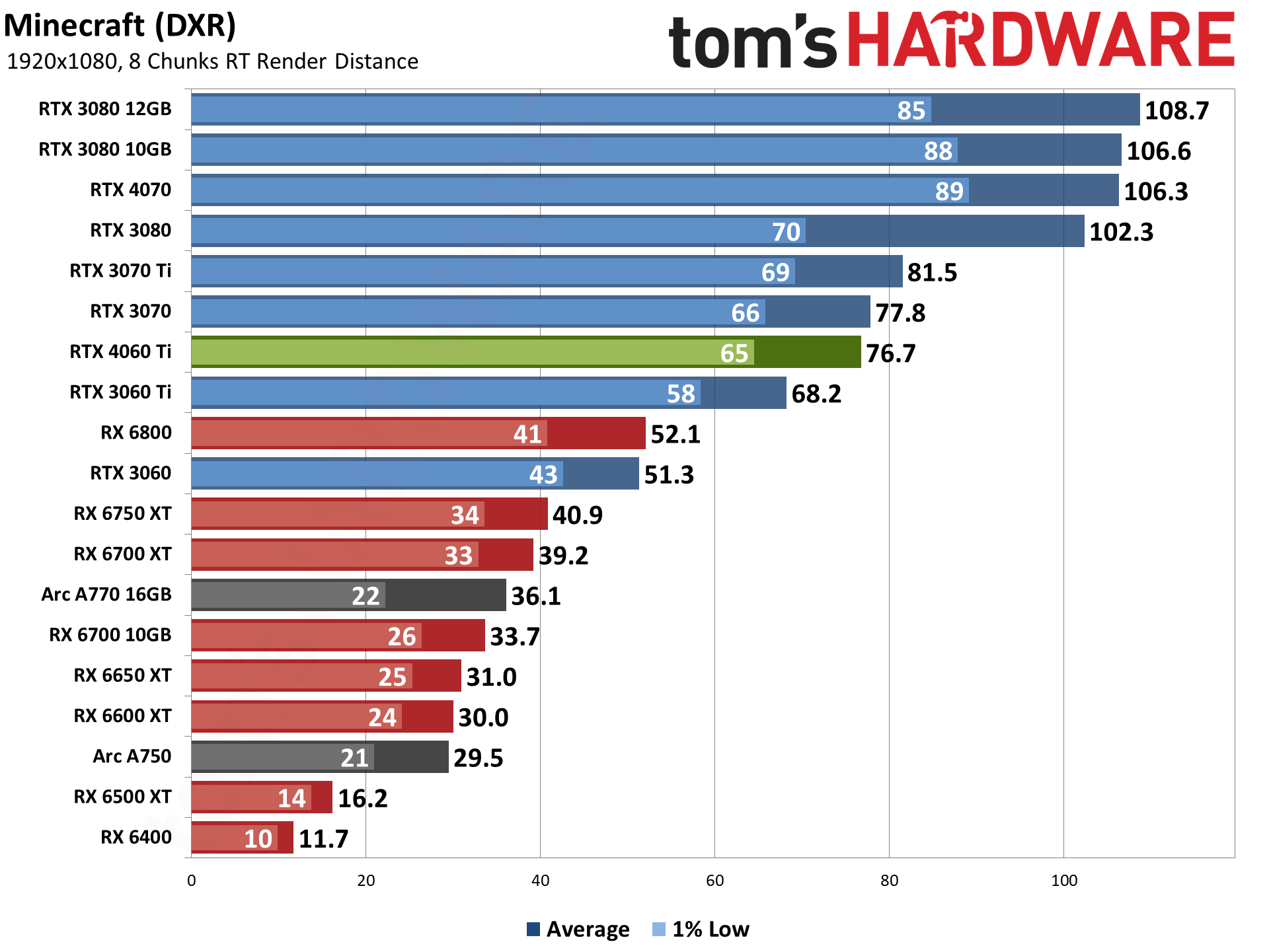
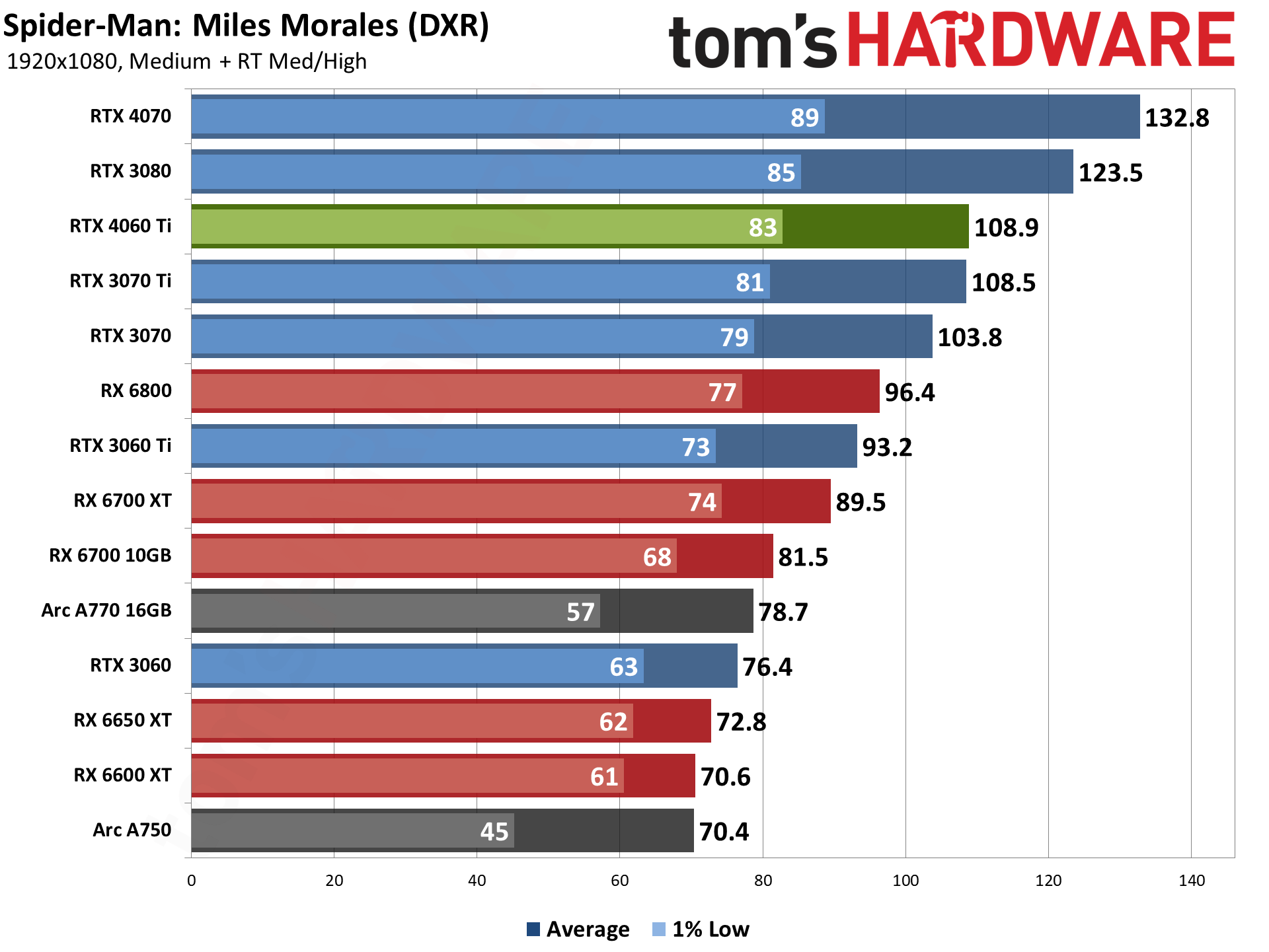
In our ray tracing test suite, we'd expect slightly improved results from the RTX 4060 Ti. After all, Nvidia says it improved the RT hardware units compared to the Ampere version — though none of the games we're currently testing utilize SER (Shader Execution Reordering), OMM (Opacity Micro-Maps), or DMM (Displacement Micro-Meshes). It's not a massive change, but there are a few cases where the 4060 Ti increases its lead over the 3060 Ti.
Overall, it's still 13% faster at 1080p ultra, but it's also 16% faster at 1080p medium. The range of improvement is 9% to 17% for ultra settings, and 4% to 24% for medium. The biggest improvements were in the medium test in Bright Memory Infinite Benchmark and Metro Exodus Enhanced.
AMD's RX 6800 meanwhile falls below the 3060 Ti, and in fact the 4060 Ti basically matches the overall ray tracing performance (in our test suite, at least) of the RX 6900 XT... while using half as much power.
- MORE: Best Graphics Cards
- MORE: GPU Benchmarks and Hierarchy
- MORE: All Graphics Content
Get Tom's Hardware's best news and in-depth reviews, straight to your inbox.
Current page: GeForce RTX 4060 Ti: 1080p Gaming Performance
Prev Page Nvidia RTX 4060 Ti Overclocking and Test Setup Next Page GeForce RTX 4060 Ti: 1440p Gaming Performance
Jarred Walton is a senior editor at Tom's Hardware focusing on everything GPU. He has been working as a tech journalist since 2004, writing for AnandTech, Maximum PC, and PC Gamer. From the first S3 Virge '3D decelerators' to today's GPUs, Jarred keeps up with all the latest graphics trends and is the one to ask about game performance.
-
lmcnabney 3.5 stars for what is a fairly negative review.Reply
Who is the target for this product? A console will perform better for the same money and eliminate the cost of the rest of the computer. -
DSzymborski Replylmcnabney said:3.5 stars for what is a fairly negative review.
Who is the target for this product? A console will perform better for the same money and eliminate the cost of the rest of the computer.
Presumably people who want a computer that can do the stuff a console can and still do the other things that a console doesn't do all that well. -
bourgeoisdude Reply
It also costs more :)HKTacticblade said:RX 6800 16GB from previous gen is already better.
Seriously though, I keep waiting for a card around this price point to upgrade to, as I have the 1070 ti, but I keep getting disappointed. I am considering AMD as a protest to what I consider the NVIDIA name tax, but frankly I am skeptical that they will do much better with their 7600 (XT) or 7700 (XT). I play enough older games that I also lean away from Intel. I guess I'm just hanging on to Pascal for a bit longer. -
J_E_D_70 WTH is going on. The $500 2070 Super 8GB from four (!!!) years ago crushes 1080p and is highly competent at 1440p. Two generations later a 4060ti should be equivalent to what... a 2080 or higher? Guess they really have hit a wall.Reply -
dk382 FYI, the professional/content creation portion of the review is for the 4070. Looks like you forgot to replace it with the 4060 Ti's data in the template.Reply -
evdjj3j Reply
I came here to say the same thing.lmcnabney said:3.5 stars for what is a fairly negative review.
Who is the target for this product? A console will perform better for the same money and eliminate the cost of the rest of the computer.
"RTX 4060 Ti comes in just ahead of the RTX 3070 at 1080p, but falls behind the RTX 3060 Ti at 1440p and 4K."
"Being faster than the RTX 3070 is at least something, but the lead is very slim, and the RTX 3060 Ti isn't far behind either. Gen on gen, we're looking at native performance that's only 13% faster with the RTX 4060 Ti."
That's not 3 1/2 starts worthy.
I'm getting the impression that Tom's doesn't want to bite the had that feeds it. -
peachpuff Reply
Maybe it's out of 10 stars? 🤔lmcnabney said:3.5 stars for what is a fairly negative review.
-
bit_user Reply
I also noticed that, but the article text explains it:dk382 said:FYI, the professional/content creation portion of the review is for the 4070. Looks like you forgot to replace it with the 4060 Ti's data in the template.
Note: We're still retesting some of the cards and so the ProViz and AI results aren't quite ready yet. Check back later today... the charts and text below are placeholders from the RTX 4070 launch. -
btmedic04 So more or less 3070 performance for $100 less now, or 3070 performance with double the vram for the same launch price as the 3070 next month. Yeah no thanks. Insane that nvidia thinks they can charge essentially the same price on 3 year old performanceReply
